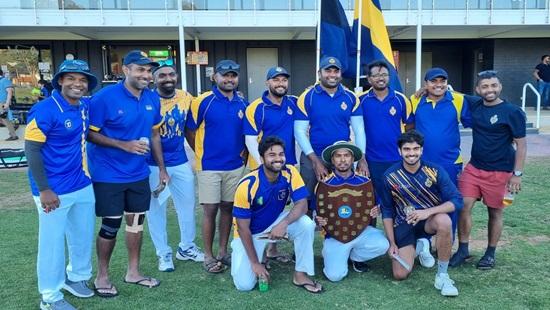
By Charit Tissera in Adelaide
An outstanding 64-run-knock by the youngster Uvindu Weerasekara steered Royal College to a six-wicket win at the 9th Battle of the Blues - Royal Thomian Adelaide Cricket Encounter played on March 3, 2024 (Sunday) at the Hectorville Cricket Grounds in Adelaide, South Australia.
Winning the toss, Royal skipper Tharindu Manchanayake elected to field first. Manchanayake himself grabbed the first wicket of the Thomian opener Jehan Thahir as Thahir was caught at slip by Royal's Shanil Samarasinghe.
Kavisha Kishor and Rohan Joshna managed to seal a 47-run partnership for the Thomians, which was however short lived when a Pinindu Weerasekara delivery nicked off Kishor’s bat and Samarasinghe worked his quick reflexes yet again for a successful catch at the first slip.
With a total of 70 runs in board for the loss of three wickets in the 19th over, St. Thomas' College was hoping its middle order would put up a partnership that would threaten the Royal bowlers. However the Royal bowling attack managed to grab quick three wickets with Esala De Livera being bowled out by Buddhika Arsecularatne for 9, Devinda Fernando run-out for 1 by Uvindu Weerasekara and Rohan Joshna being caught by Gayan Silva for 32 for a Dulith Hettiarachchi delivery.
With 89 runs for six wickets on the 26th over, Thomians faced another blow as Manesh Fernando was stumped out by Manojkumar Siva for a yet another Pinindu Weerasekara delivery, when Fernando had added 17 runs to the Thomian total. Uditha Rajasekara added 17 more runs to the Thomian total off 18 deliveries, but he was run-out yet again by Uvindu Weerasekara when the St. Thomas’ College total was at 116.
St. Thomas’ College recorded a total of 131 runs on board at the end of 35 overs.
The target of 132 in 40 overs seemed an easy one for the Royalists, however two tricky deliveries off Esala De Livera created a major upset for the Royal opening duo Shanil Samarasinghe and Joel Ariyadorai as they were caught LBW within the first five overs of the Royal Innings.
An impressive 68-run partnership which came off the bats of Royal’s Dhan Uswatte and Uvindu Weerasekara restored the victory hopes for the Royalists. However, when the Royal’s total was 90, the Thomians made yet another breakthrough by bowling out Uswatte for 38, thanks to a Kasun Silva delivery.
Gayan Silva then joined Uvindu Weerasekara in the middle, where Weerasekara continued to score a half ton for the Royalists. He included seven 4’s and two 6’s to record 64 runs off his bat, and just one run spared from the target, Weerasekara was caught by Mahen Fernando for a Jehan Thahir delivery.
Sachinda Fernando who replaced Weerasekara in the middle, scored the winning run for the Royalists.
The ‘Man of the Match’ and ‘Best Batsman’ titles were awarded to Uvindu Weerasekara, his brother Pininidu Weerasekara was awarded the ‘Best Bowler’ while Shanil Samarasinghe was awarded the ‘Best Fielder’.
With this year's win, Royal College is leading the tally of the Battle of the Blues - Royal Thomian Adelaide Cricket Encounter by 6 to 3.
The 9th Battle of the Blues - Royal Thomian Adelaide Cricket Encounter was organized by the Joint Committee of Royal College and St. Thomas' College Old Boys Associations in Adelaide, South Australia.
Match Highlights
St. Thomas’ College - Batting - 131 all out (35 overs)
Rohan Joshna - 32
Kavisha Kishor - 20
Kasun Silva - 17
Manesh Fernando - 17
Uditha Rajasekara - 17
Extras - 8
Royal College - Bowling
Pinindu Weerasekara : 7 overs | 29 runs | 3 wkts
Tharindu Manchanayaka : 6.1 overs | 18 runs | 2 wkts
Buddhika Arsecularatne : 6 overs | 2 maidens | 13 runs | 1 wkt
Manojkumar Siva : 4 overs | 20 runs | 1 wkt
Dulith Hettiarachchi : 3 overs | 11 runs | 1 wkt
Royal College - Batting - 132/4 (21 overs)
Uvindu Weerasekara - 64
Dhan Uswatte - 38
Gayan Silva - 17 (not out)
Extras - 10
St. Thomas’ College - Bowling
Esala De Livera : 4 overs | 29 runs | 2 wkts
Kasun Silva : 4 overs | 35 runs | 1 wkt
Jehan Thahir : 1 over | 2 runs | 1 wkt
Royal College team - Shanil Samarasinghe, Joel Aiyadorai, Dhan Uswatte, Uvindu Weerasekara, Gayan Silva, Dulith Hettiarachchi, Sachinda Fernando, Pinindu Weerasekara,
Manojkumar Siva, Tharindu Manchanayaka, Buddhika Arsecularatne, Thilina Gunasekara, Charit Tissera
St. Thomas’ College team - Jehan Thahir, Kasun Silva, Kavisha Kishor, Rohan Joshna, Esala De Livera, Devinda Fernando, Manesh Fernando, Uditha Rajasekara, Yashod Enduruwa, Mahen Fernando, Dulan Peiris, Adarsh Nanayakkara
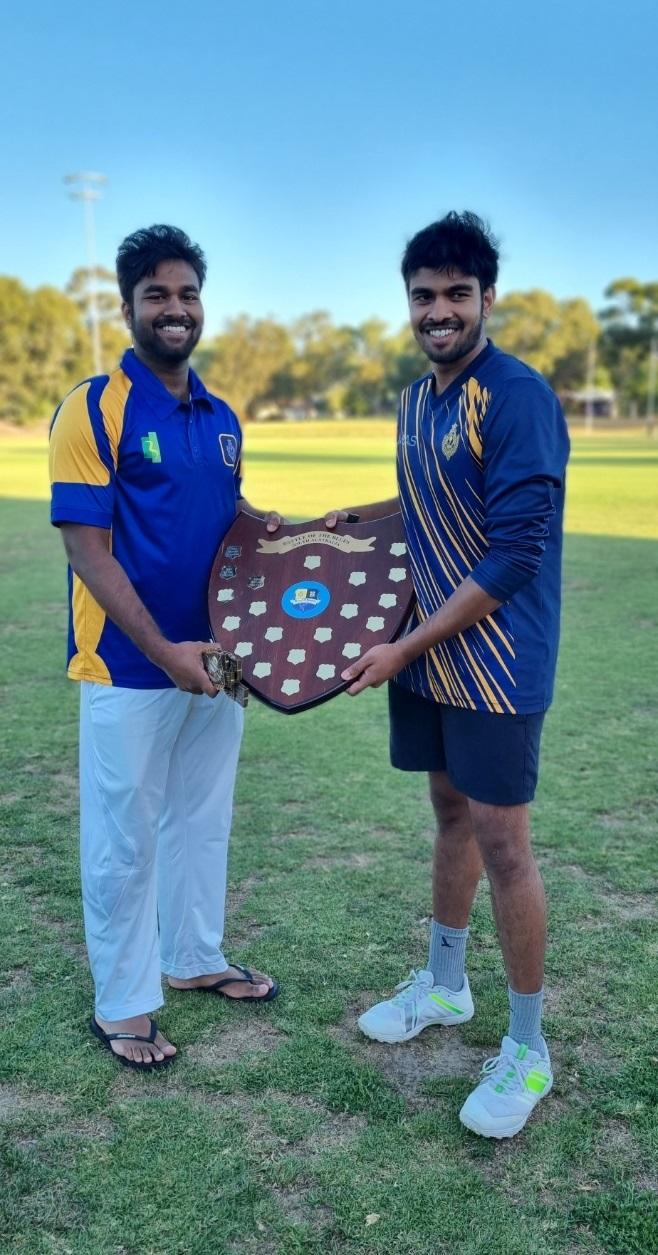
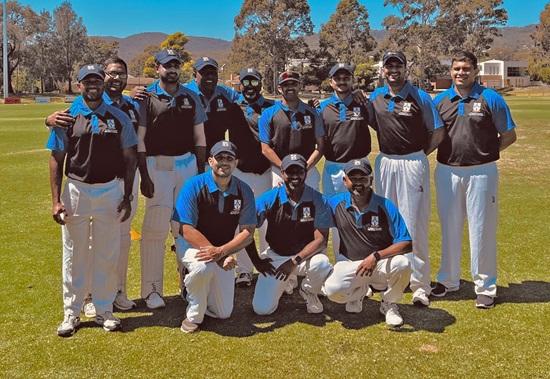
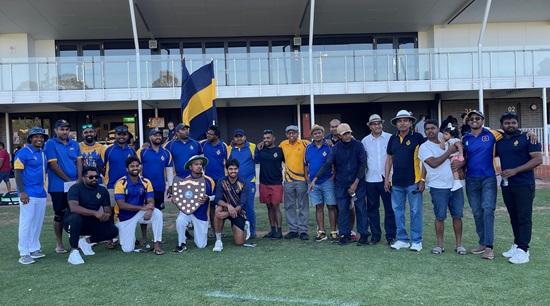
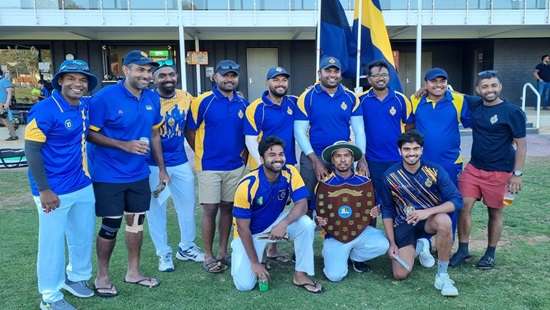 ]]>
]]>
By Charit Tissera in Adelaide
An outstanding 64-run-knock by the youngster Uvindu Weerasekara steered Royal College to a six-wicket win at the 9th Battle of the Blues - Royal Thomian Adelaide Cricket Encounter played on March 3, 2024 (Sunday) at the Hectorville Cricket Grounds in Adelaide, South Australia.
Winning the toss, Royal skipper Tharindu Manchanayake elected to field first. Manchanayake himself grabbed the first wicket of the Thomian opener Jehan Thahir as Thahir was caught at slip by Royal's Shanil Samarasinghe.
Kavisha Kishor and Rohan Joshna managed to seal a 47-run partnership for the Thomians, which was however short lived when a Pinindu Weerasekara delivery nicked off Kishor’s bat and Samarasinghe worked his quick reflexes yet again for a successful catch at the first slip.
With a total of 70 runs in board for the loss of three wickets in the 19th over, St. Thomas' College was hoping its middle order would put up a partnership that would threaten the Royal bowlers. However the Royal bowling attack managed to grab quick three wickets with Esala De Livera being bowled out by Buddhika Arsecularatne for 9, Devinda Fernando run-out for 1 by Uvindu Weerasekara and Rohan Joshna being caught by Gayan Silva for 32 for a Dulith Hettiarachchi delivery.
With 89 runs for six wickets on the 26th over, Thomians faced another blow as Manesh Fernando was stumped out by Manojkumar Siva for a yet another Pinindu Weerasekara delivery, when Fernando had added 17 runs to the Thomian total. Uditha Rajasekara added 17 more runs to the Thomian total off 18 deliveries, but he was run-out yet again by Uvindu Weerasekara when the St. Thomas’ College total was at 116.
St. Thomas’ College recorded a total of 131 runs on board at the end of 35 overs.
The target of 132 in 40 overs seemed an easy one for the Royalists, however two tricky deliveries off Esala De Livera created a major upset for the Royal opening duo Shanil Samarasinghe and Joel Ariyadorai as they were caught LBW within the first five overs of the Royal Innings.
An impressive 68-run partnership which came off the bats of Royal’s Dhan Uswatte and Uvindu Weerasekara restored the victory hopes for the Royalists. However, when the Royal’s total was 90, the Thomians made yet another breakthrough by bowling out Uswatte for 38, thanks to a Kasun Silva delivery.
Gayan Silva then joined Uvindu Weerasekara in the middle, where Weerasekara continued to score a half ton for the Royalists. He included seven 4’s and two 6’s to record 64 runs off his bat, and just one run spared from the target, Weerasekara was caught by Mahen Fernando for a Jehan Thahir delivery.
Sachinda Fernando who replaced Weerasekara in the middle, scored the winning run for the Royalists.
The ‘Man of the Match’ and ‘Best Batsman’ titles were awarded to Uvindu Weerasekara, his brother Pininidu Weerasekara was awarded the ‘Best Bowler’ while Shanil Samarasinghe was awarded the ‘Best Fielder’.
With this year's win, Royal College is leading the tally of the Battle of the Blues - Royal Thomian Adelaide Cricket Encounter by 6 to 3.
The 9th Battle of the Blues - Royal Thomian Adelaide Cricket Encounter was organized by the Joint Committee of Royal College and St. Thomas' College Old Boys Associations in Adelaide, South Australia.
Match Highlights
St. Thomas’ College - Batting - 131 all out (35 overs)
Rohan Joshna - 32
Kavisha Kishor - 20
Kasun Silva - 17
Manesh Fernando - 17
Uditha Rajasekara - 17
Extras - 8
Royal College - Bowling
Pinindu Weerasekara : 7 overs | 29 runs | 3 wkts
Tharindu Manchanayaka : 6.1 overs | 18 runs | 2 wkts
Buddhika Arsecularatne : 6 overs | 2 maidens | 13 runs | 1 wkt
Manojkumar Siva : 4 overs | 20 runs | 1 wkt
Dulith Hettiarachchi : 3 overs | 11 runs | 1 wkt
Royal College - Batting - 132/4 (21 overs)
Uvindu Weerasekara - 64
Dhan Uswatte - 38
Gayan Silva - 17 (not out)
Extras - 10
St. Thomas’ College - Bowling
Esala De Livera : 4 overs | 29 runs | 2 wkts
Kasun Silva : 4 overs | 35 runs | 1 wkt
Jehan Thahir : 1 over | 2 runs | 1 wkt
Royal College team - Shanil Samarasinghe, Joel Aiyadorai, Dhan Uswatte, Uvindu Weerasekara, Gayan Silva, Dulith Hettiarachchi, Sachinda Fernando, Pinindu Weerasekara,
Manojkumar Siva, Tharindu Manchanayaka, Buddhika Arsecularatne, Thilina Gunasekara, Charit Tissera
St. Thomas’ College team - Jehan Thahir, Kasun Silva, Kavisha Kishor, Rohan Joshna, Esala De Livera, Devinda Fernando, Manesh Fernando, Uditha Rajasekara, Yashod Enduruwa, Mahen Fernando, Dulan Peiris, Adarsh Nanayakkara



 ]]>
]]>

A German man has been found to have received a COVID-19 vaccination more than 200 times.
Researchers at Friedrich-Alexander-Universität Erlangen-Nürnberg (FAU) and Universitätsklinikum Erlangen said they encountered the case through media reports, and asked the man, 62, to undergo some testing.
He had received 217 vaccinations in a period of two years and five months, according to the results of the study, published in the journal Lancet.
It was theorised the repeated injections may have affected his immune system, fatiguing the body's T-cells that fight disease.
However, it was not the case.
"Overall, we did not find any indication for a weaker immune response, rather the contrary," co-lead author Katharina Kocher said in a statement.
The man even had another vaccination - his 217th - during the trial, with no ill effects observed.
"Our test case was vaccinated with a total of eight different vaccines, including different available mRNA vaccines," researcher Dr Kilian Schober said.
"The observation that no noticeable side effects were triggered in spite of this extraordinary hypervaccination indicates that the drugs have a good degree of tolerability."
However, the scientists noted that the man was an individual case and not necessarily an indication of how a broader population would react to such "hypervaccination".
They recommended most people continue to follow the recommended three-jab course, with regular top-ups for vulnerable groups. (Courtesy Nine News)
 ]]>
]]>
A German man has been found to have received a COVID-19 vaccination more than 200 times.
Researchers at Friedrich-Alexander-Universität Erlangen-Nürnberg (FAU) and Universitätsklinikum Erlangen said they encountered the case through media reports, and asked the man, 62, to undergo some testing.
He had received 217 vaccinations in a period of two years and five months, according to the results of the study, published in the journal Lancet.
It was theorised the repeated injections may have affected his immune system, fatiguing the body's T-cells that fight disease.
However, it was not the case.
"Overall, we did not find any indication for a weaker immune response, rather the contrary," co-lead author Katharina Kocher said in a statement.
The man even had another vaccination - his 217th - during the trial, with no ill effects observed.
"Our test case was vaccinated with a total of eight different vaccines, including different available mRNA vaccines," researcher Dr Kilian Schober said.
"The observation that no noticeable side effects were triggered in spite of this extraordinary hypervaccination indicates that the drugs have a good degree of tolerability."
However, the scientists noted that the man was an individual case and not necessarily an indication of how a broader population would react to such "hypervaccination".
They recommended most people continue to follow the recommended three-jab course, with regular top-ups for vulnerable groups. (Courtesy Nine News)
 ]]>
]]>

On 20 December Antoinette Lattouf signed off from the Sydney radio show she was hosting with a promise she'd be back the next day.
"Can't wait," she told listeners.
But the veteran journalist and presenter did not return to the airwaves. Later that afternoon she was sacked, with her boss saying the order had come from "above".
She was only three days into a week-long stint filling in as host of the local Mornings show on the Australian Broadcasting Corporation (ABC). Just hours earlier she insists she was told it was going well.
But behind the scenes, her appointment to the coveted role had attracted ardent lobbying from pro-Israel groups who accused her of antisemitism and bias.
Lattouf - who is of Lebanese heritage - says she fears the ABC buckled under external pressure, sacking her based on political opinion and race. She has launched a wrongful termination case.
The broadcaster vehemently denies this and says Lattouf was let go because she broke its directions on social media by re-sharing a Human Rights Watch (HRW) post about the Israel Gaza war.
Her dismissal has triggered a wave of public outrage and created turmoil at the public broadcaster - raising questions over its independence and reviving concerns over how it supports staff, particularly those who are culturally diverse, when they come under attack.
Criticism over activism
Lattouf is believed to be the first Arab-Australian woman to be a reporter on commercial television, and today is a regular staple on Australian airwaves or in its local newspapers.
But the 40-year-old has also made a name for herself as an activist on issues like racism, discrimination in media and mental health.
Before she was hired by the ABC, Lattouf attracted criticism for social media posts on the Israel Gaza war which decried the impact on Palestinian civilians.
In some posts she accused Israel of targeting and killing journalists in Gaza, something echoed by the New York-based Committee to Protect Journalists but which Israel denies.
She also drew ire for an article she co-authored in which online verification experts questioned video which purported to show pro-Palestinian protesters chanting "gas the Jews" at a march in Sydney.
The ABC has stressed the critical importance of impartiality and also has strict social media requirements. It bans posts which could damage its reputation.
Lattouf has long been a regular contributor to the ABC, and agreed to curtail her social media use when she started her presenting stint.
But she says she was told sharing information from "reputable" sources like human rights groups was fine, and so on 19 December shared a post from HRW which said Israel was using starvation as a tool of war. Israel denies the accusation.
Lattouf's post came hours after the ABC itself had covered the HRW report, and Lattouf claims other ABC employees had also shared the post. She also alleges other staff have written "far more inflammatory" social media posts in the past but remain employed.
"The difference between them is they are white and I have an Arab background," she told the BBC.
She wants a public apology from the ABC, compensation, and a similar role back on air.
But in its reply to Ms Lattouf's legal action, the ABC said her case was "entirely misconceived", and she was taken off-air "because she failed or refused to comply with directions that she not post on social media about matters of controversy".
She was paid for all five shifts, it added.
Swift backlash
The case sparked an immediate uproar in Australia.
HRW wrote to the ABC Chair, Ita Buttrose, saying it was "troubling" that its "factual" material had been deemed "controversial'", something it said could have a "chilling effect" on Australian journalism.
The media union also called the decision to remove Lattouf "incredibly disturbing", while Minister for Industry Ed Husic said people expressing a "peaceful" view "shouldn't feel like their jobs are on the line".
Protestors have graffitied ABC offices in Perth and Melbourne, and crowdfunding for Lattouf's legal fees has already raised over A$90,000 (£40,100; $62,500).
Others, defending the broadcaster's decision to sack her, argued she shouldn't have been hired for the role in the first place - given her history on the issue.
But a series of leaked WhatsApp chats have in recent days have dramatically intensified the storm.
Dozens of messages from two groups seen by the BBC show a concerted letter-writing campaign against Lattouf in the days before she was fired.
The hundreds of members in both groups - one called Lawyers for Israel and another called J.E.W.I.S.H Australian creatives and academics - were encouraged to write directly to ABC boss David Anderson, the ABC board and Communications Minister Michelle Rowland.
"It is important ABC hears not just from individuals in the community but specifically lawyers so they feel there is an actual legal threat," wrote one member of Lawyers for Israel, Nicky Stein, something she later admitted "a bit cheeky".
Some letter-writers claimed they had received direct responses from board chair Ita Buttrose and when news of Lattouf's exit spread, many congratulated themselves.
"Good riddance to bad rubbish," one person said.
"No doubt the PP [pro-Palestinians] will start whinging now about censorship and the Jewish lobby controlling the media," another wrote.
And when she launched her legal case in the Fair Work Commission (FWC) one person called her lawyer, who is Jewish, a "traiter".
Several members of the Lawyers for Israel chat have denied the group - which included Jewish community leaders - was controlled by any bodies or intended for organised lobbying.
Ms Stein told the Sydney Morning Herald (SMH) it was simply "a group of lawyers concerned about Israel and rising antisemitism".
Staff revolt
The WhatsApp messages sparked a livid meeting of the ABC staff union, attended by about 200 people.
One of the broadcaster's most senior journalists, global affairs editor John Lyons, reportedly said the release of the messages marked "one of [the ABC's] darkest days".
"When I read those WhatsApp messages, for the first time ever… I felt embarrassed to work for the ABC," he said, according to the SMH.
"I was embarrassed that a group of 156 lawyers could laugh at how easy it was to manipulate the ABC."
The meeting culminated in a rare vote of no confidence in the ABC boss David Anderson.
Union members made a list of demands, giving the editorial leadership team until Monday to respond. They have previously threatened a walkout if their concerns aren't addressed.
The ABC board responded by calling its own emergency meeting and passing a unanimous vote of confidence in Anderson.
"Any suggestion I would not defend our position when external pressure is applied - regardless of where that pressure is coming from - is offensive and incorrect," he said in a statement.
He agreed to meet staff - but "in the coming weeks".
The case has reopened old wounds for the ABC.
It has revived concerns about how it treats diverse staff, after an ugly saga last year in which pioneering Aboriginal journalist Stan Grant quit over what he called a failure to protect him from racist attacks.
And it's also fed uneasiness about the broadcaster's independence. Advocates worry that politicised appointments to the ABC board, its government-dictated funding model, and increased - often frenzied - scrutiny is jeopardising its work.
The saga also comes as the broader Australian media grapples with tension over the impartiality of its coverage of the Israel Gaza war.
Most notably, ABC political reporter Nour Haydar left the public broadcaster this month over its coverage of the war, as well as its treatment of culturally diverse staff. The ABC has defended its impartiality and said it is "continuing to progress" on diversity matters despite having its "most representative" workforce ever.
Lattouf says its these broader themes that make her case so important.
"It is not just about me. It's about free speech, it's about racism… and crucially, it's also about a fair, independent and robust ABC," she told reporters last week.
After a failed mediation meeting, the ABC is now attempting to have Lattouf's case thrown out, arguing it didn't actually sack her.
The matter is back at the FWC in March, and Lattouf says she's in it for the long haul.
"I'm willing and prepared to fight for as long as it takes," she said. (BBC)

On 20 December Antoinette Lattouf signed off from the Sydney radio show she was hosting with a promise she'd be back the next day.
"Can't wait," she told listeners.
But the veteran journalist and presenter did not return to the airwaves. Later that afternoon she was sacked, with her boss saying the order had come from "above".
She was only three days into a week-long stint filling in as host of the local Mornings show on the Australian Broadcasting Corporation (ABC). Just hours earlier she insists she was told it was going well.
But behind the scenes, her appointment to the coveted role had attracted ardent lobbying from pro-Israel groups who accused her of antisemitism and bias.
Lattouf - who is of Lebanese heritage - says she fears the ABC buckled under external pressure, sacking her based on political opinion and race. She has launched a wrongful termination case.
The broadcaster vehemently denies this and says Lattouf was let go because she broke its directions on social media by re-sharing a Human Rights Watch (HRW) post about the Israel Gaza war.
Her dismissal has triggered a wave of public outrage and created turmoil at the public broadcaster - raising questions over its independence and reviving concerns over how it supports staff, particularly those who are culturally diverse, when they come under attack.
Criticism over activism
Lattouf is believed to be the first Arab-Australian woman to be a reporter on commercial television, and today is a regular staple on Australian airwaves or in its local newspapers.
But the 40-year-old has also made a name for herself as an activist on issues like racism, discrimination in media and mental health.
Before she was hired by the ABC, Lattouf attracted criticism for social media posts on the Israel Gaza war which decried the impact on Palestinian civilians.
In some posts she accused Israel of targeting and killing journalists in Gaza, something echoed by the New York-based Committee to Protect Journalists but which Israel denies.
She also drew ire for an article she co-authored in which online verification experts questioned video which purported to show pro-Palestinian protesters chanting "gas the Jews" at a march in Sydney.
The ABC has stressed the critical importance of impartiality and also has strict social media requirements. It bans posts which could damage its reputation.
Lattouf has long been a regular contributor to the ABC, and agreed to curtail her social media use when she started her presenting stint.
But she says she was told sharing information from "reputable" sources like human rights groups was fine, and so on 19 December shared a post from HRW which said Israel was using starvation as a tool of war. Israel denies the accusation.
Lattouf's post came hours after the ABC itself had covered the HRW report, and Lattouf claims other ABC employees had also shared the post. She also alleges other staff have written "far more inflammatory" social media posts in the past but remain employed.
"The difference between them is they are white and I have an Arab background," she told the BBC.
She wants a public apology from the ABC, compensation, and a similar role back on air.
But in its reply to Ms Lattouf's legal action, the ABC said her case was "entirely misconceived", and she was taken off-air "because she failed or refused to comply with directions that she not post on social media about matters of controversy".
She was paid for all five shifts, it added.
Swift backlash
The case sparked an immediate uproar in Australia.
HRW wrote to the ABC Chair, Ita Buttrose, saying it was "troubling" that its "factual" material had been deemed "controversial'", something it said could have a "chilling effect" on Australian journalism.
The media union also called the decision to remove Lattouf "incredibly disturbing", while Minister for Industry Ed Husic said people expressing a "peaceful" view "shouldn't feel like their jobs are on the line".
Protestors have graffitied ABC offices in Perth and Melbourne, and crowdfunding for Lattouf's legal fees has already raised over A$90,000 (£40,100; $62,500).
Others, defending the broadcaster's decision to sack her, argued she shouldn't have been hired for the role in the first place - given her history on the issue.
But a series of leaked WhatsApp chats have in recent days have dramatically intensified the storm.
Dozens of messages from two groups seen by the BBC show a concerted letter-writing campaign against Lattouf in the days before she was fired.
The hundreds of members in both groups - one called Lawyers for Israel and another called J.E.W.I.S.H Australian creatives and academics - were encouraged to write directly to ABC boss David Anderson, the ABC board and Communications Minister Michelle Rowland.
"It is important ABC hears not just from individuals in the community but specifically lawyers so they feel there is an actual legal threat," wrote one member of Lawyers for Israel, Nicky Stein, something she later admitted "a bit cheeky".
Some letter-writers claimed they had received direct responses from board chair Ita Buttrose and when news of Lattouf's exit spread, many congratulated themselves.
"Good riddance to bad rubbish," one person said.
"No doubt the PP [pro-Palestinians] will start whinging now about censorship and the Jewish lobby controlling the media," another wrote.
And when she launched her legal case in the Fair Work Commission (FWC) one person called her lawyer, who is Jewish, a "traiter".
Several members of the Lawyers for Israel chat have denied the group - which included Jewish community leaders - was controlled by any bodies or intended for organised lobbying.
Ms Stein told the Sydney Morning Herald (SMH) it was simply "a group of lawyers concerned about Israel and rising antisemitism".
Staff revolt
The WhatsApp messages sparked a livid meeting of the ABC staff union, attended by about 200 people.
One of the broadcaster's most senior journalists, global affairs editor John Lyons, reportedly said the release of the messages marked "one of [the ABC's] darkest days".
"When I read those WhatsApp messages, for the first time ever… I felt embarrassed to work for the ABC," he said, according to the SMH.
"I was embarrassed that a group of 156 lawyers could laugh at how easy it was to manipulate the ABC."
The meeting culminated in a rare vote of no confidence in the ABC boss David Anderson.
Union members made a list of demands, giving the editorial leadership team until Monday to respond. They have previously threatened a walkout if their concerns aren't addressed.
The ABC board responded by calling its own emergency meeting and passing a unanimous vote of confidence in Anderson.
"Any suggestion I would not defend our position when external pressure is applied - regardless of where that pressure is coming from - is offensive and incorrect," he said in a statement.
He agreed to meet staff - but "in the coming weeks".
The case has reopened old wounds for the ABC.
It has revived concerns about how it treats diverse staff, after an ugly saga last year in which pioneering Aboriginal journalist Stan Grant quit over what he called a failure to protect him from racist attacks.
And it's also fed uneasiness about the broadcaster's independence. Advocates worry that politicised appointments to the ABC board, its government-dictated funding model, and increased - often frenzied - scrutiny is jeopardising its work.
The saga also comes as the broader Australian media grapples with tension over the impartiality of its coverage of the Israel Gaza war.
Most notably, ABC political reporter Nour Haydar left the public broadcaster this month over its coverage of the war, as well as its treatment of culturally diverse staff. The ABC has defended its impartiality and said it is "continuing to progress" on diversity matters despite having its "most representative" workforce ever.
Lattouf says its these broader themes that make her case so important.
"It is not just about me. It's about free speech, it's about racism… and crucially, it's also about a fair, independent and robust ABC," she told reporters last week.
After a failed mediation meeting, the ABC is now attempting to have Lattouf's case thrown out, arguing it didn't actually sack her.
The matter is back at the FWC in March, and Lattouf says she's in it for the long haul.
"I'm willing and prepared to fight for as long as it takes," she said. (BBC)
A cricket legend and former prime minister languishing in prison versus a one-time fugitive looking to make a comeback as a powerful military keeps watch.
A populist leader hoping to enter his second decade in power as he pushes a popular but religiously divisive brand of politics.
And an island nation recovering from its worst economic crisis in decades after protesters stormed the presidential palace.
Four South Asian countries are expected to head to the polls next year, in a grand test for democracy that will see nearly 2 billion people across Bangladesh, Pakistan, India and Sri Lanka cast their ballots from January through September.
All former colonies who gained independence from Britain within the last century, each are at a different stage of growth and facing a variety of crises and opportunities.
Here’s what you need to know about democracy’s greatest show.
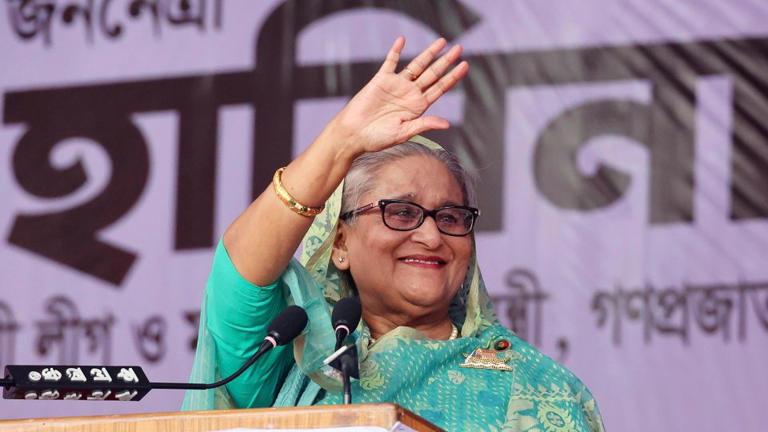
Bangladesh
Bangladesh, a country of some 170 million people, is the first to cast votes on January 7.
The once multiparty democracy is being threatened as its ruling Awami League party continues what rights groups say is a campaign to silence dissent, pushing the republic toward something more closely resembling a one-party state.
Sheikh Hasina, current Prime Minister and chair of the Awami Party, is likely to be reelected as the country’s leader for a fourth consecutive term.
Hasina has been in power since 2009 and won the last election in December 2019, in a poll marred in deadly violence and accusations of poll rigging.
Missing then was her primary opponent Khaleda Zia, a former prime minister and chief of the main opposition, the Bangladesh Nationalist Party (BNP), who was jailed the year before on corruption charges.
For much of the past three decades, politics in Bangladesh has been defined by a bitter rivalry between the two women, who both saw their politician father and husband respectively assassinated in office. Political turmoil has followed into the second generation.
Zia, 78, now lives under house arrest and her BNP continues to face mounting challenges by Hasina and her ruling dispensation with the mass arrest of its politicians.
The situation has led to protests, and the BNP has decided to boycott the election again, paving the way for Hasina once more.
“The government is claiming to commit to free and fair elections with diplomatic partners while the state authorities are simultaneously filling prisons with the ruling Awami League’s political opponents,” said Julia Bleckner, senior Asia researcher at Human Rights Watch, in a November statement.
“A free election is impossible when the government stifles free expression and systematically incapacitates the opposition, critics, and activists through arbitrary arrests, enforced disappearance, harassment, and intimidation,” Bleckner added.
Yet, the country – which is aspiring to become a middle-income country by 2031 – is experiencing an era of economic growth. Much of this is because of the garment manufacturing industry, which accounts for 35.1% of Bangladesh’s annual gross domestic product, according to the US Commerce Department.
“Since it’s come into being, Bangladesh has always had political instability, but they’ve managed to have very good growth rate” said Sreeradha Dutta, professor of international affairs at OP Jindal Global University and author of “Bangladesh on a New Journey – Moving Beyond Regional Identity.”
She added also that the country is building strong relations with key neighbors in the region.
“So irrespective whoever the leader is, the same developmental models will be picked up… because Bangladesh aspires to be something much larger than what it currently is.”
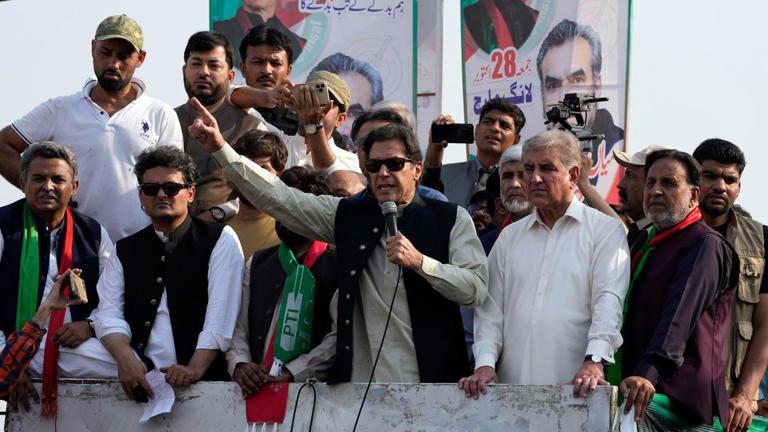
Pakistan
Ruled for much of its 76 years by political dynasties or military establishments, no democratically elected leader has ever completed a full five-year term since Pakistan won independence.
In recent years the country of 230 million has seen the all-too-familiar mix of political instability and militant attacks percolate alongside a particularly acute economic crisis that has been brutal on both middle and lower income families.
Imran Khan, the country’s former prime minister and arguably the most popular figurehead, is languishing behind bars, charged with fraud and facing charges for revealing state secrets – leaving him unable to contest in the upcoming polls in February.
Khan, who was ousted from power in a parliamentary no-confidence vote last year, says the charges against him are politically motivated and framed to stop him from standing in the election, an allegation authorities deny.
TV stations are banned from running Khan’s speeches, and many of his Pakistan Tehreek-e-Insaf (PTI) party colleagues have been arrested.
In October, Nawaz Sharif, the fugitive former prime minister of Pakistan, returned to the South Asian nation after nearly four years in self-exile, skirting arrest and stirring up the country’s already fraught political scene and leaving many to believe he is bidding for the top seat once again.
The country, meanwhile, faces mounting challenges – from economic uncertainty and frequent militant attacks to climate catastrophes that are putting millions at risk – setting the stage for a difficult road to recovery for its new leadership.
“Political and economic uncertainty go hand in hand,” said Fahd Humayun, assistant professor of political science & Neubauer faculty fellow at the department of political science at Tufts University.
“And any government coming to power through suspicious elections is not only likely to be on a weak footing and reliant on the military for its political survival but will also be unlikely to attract the capital inflows so badly needed.”
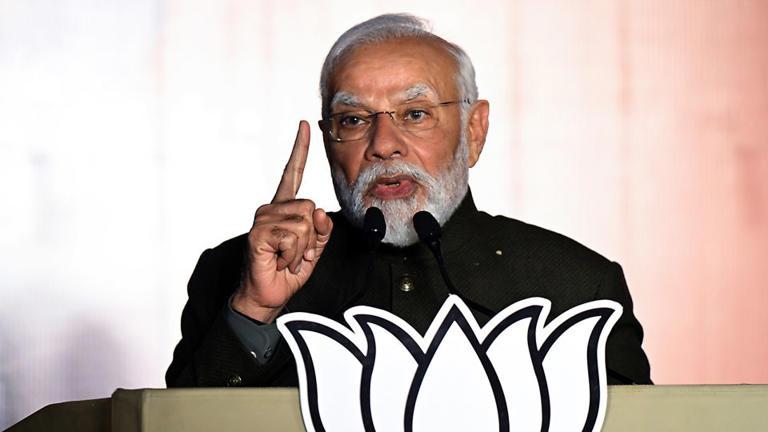
India
Often called the world’s largest experiment in democracy, India is expected to head to the polls in the spring, in a mammoth election that is likely to see Prime Minister Narendra Modi secure a rare third term in power.
The populist leader of the Hindu nationalist Bharatiya Janata Party (BJP), has tightened his grip on India’s democratic institutions in way not seen since 1970s, when Indira Gandhi ruled the country with an iron fist, pushing it toward autocracy.
But on the world stage, India has arguably never been more significant.
Modi, whose calendar this year included diplomatic trips to Australia and the United States, is presenting himself as a statesman who is cementing the country as a modern superpower. And 2023 has been a remarkable year for India’s 1.4 billion people.
This year was the moment it overtook China to become the world’s most-populous nation, while the year before it surpassed its former colonial ruler Britain to become the world’s fifth-largest economy.
In August, India made history by soft landing a rover on the moon, becoming just the fourth nation in the world to have completed such a feat – and it launched its first spacecraft dedicated to studying the sun weeks after.
The country hosted the Group of 20 (G20) in September, presenting New Delhi with an opportunity to extend its leadership beyond the country’s borders at a time of increasing political turmoil.
Yet, since his first election nearly a decade ago, critics also say the once secular and democratic founding ethos of the world’s largest democracy is crumbling at alarming speed, with minorities feeling persecuted under the BJP’s majoritarian policies and any criticism of the government facing censorship and harsh punishment.
Squaring off against Modi is a newly formed alliance of 26 political parties known as INDIA, which includes the country’s main opposition, the Indian National Congress.
But in its most recent gauge of voter sentiment, the Congress party lost three out of four regional votes in key state elections in December, giving a boost to Modi and his BJP.
As the election draws close, analysts say Indian politics remains unpredictable, and much can change as the parties gear up to campaign in the months ahead.
“People are hoping there will be a challenge to Modi, that the opposition parties can get their act together. That dream that seemed possible even three months ago now looks more difficult,” said C. Raja Mohan, senior fellow at Asia Society Policy Institute, during a recent talk with the Asia Society.
“But even six months is a long time in politics.”
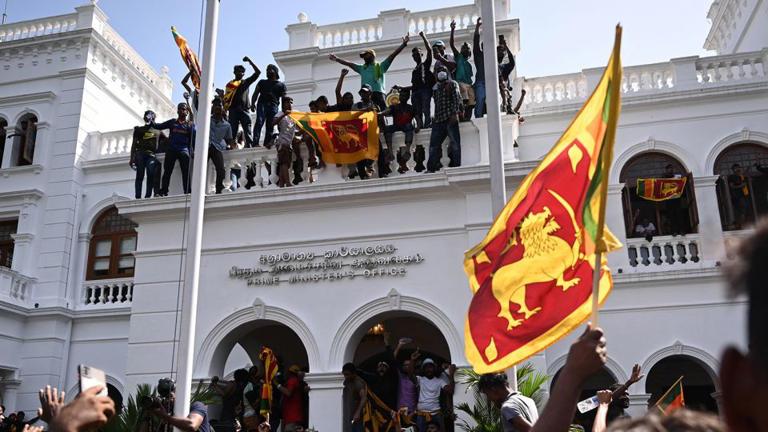
Sri Lanka
Nearly two years ago, Sri Lanka’s then-President Gotabaya Rajapaksa was forced to flee his country after angry protesters stormed his residence in anger, blaming him for the country’s worst economic crisis in 73 years.
It was a remarkable moment for a protest movement that thrust the bankrupt nation of 22 million into the global spotlight after inflation soared and foreign reserves dwindled, leaving millions unable to afford food, fuel and medicines.
Rajapaksa resigned from his post, paving the way for current President Ranil Wickremesinghe to take over.
In elections expected before September, Wickremesinghe is likely to stand for a second term, months after he helped secure a much-needed loan from the International Monetary Fund and made sweeping reforms to the budget to ensure financial growth.
Sri Lanka hasn’t had a general election since 2018, and Wickremesinghe has repeatedly delayed the polls due to the economic crisis.
As the economy – and the country’s people – recover, a date for the election is yet to be announced and it remains to be seen whether 2024 will be the year the country’s people decide on its future leader. (CNN)
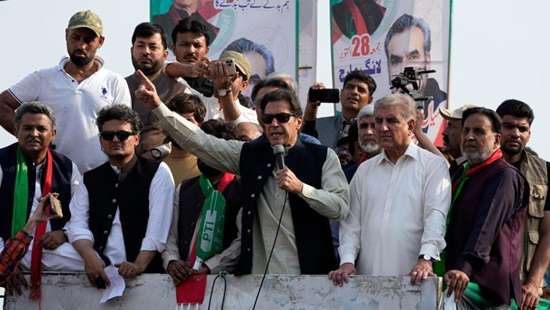 ]]>
]]>A cricket legend and former prime minister languishing in prison versus a one-time fugitive looking to make a comeback as a powerful military keeps watch.
A populist leader hoping to enter his second decade in power as he pushes a popular but religiously divisive brand of politics.
And an island nation recovering from its worst economic crisis in decades after protesters stormed the presidential palace.
Four South Asian countries are expected to head to the polls next year, in a grand test for democracy that will see nearly 2 billion people across Bangladesh, Pakistan, India and Sri Lanka cast their ballots from January through September.
All former colonies who gained independence from Britain within the last century, each are at a different stage of growth and facing a variety of crises and opportunities.
Here’s what you need to know about democracy’s greatest show.

Bangladesh
Bangladesh, a country of some 170 million people, is the first to cast votes on January 7.
The once multiparty democracy is being threatened as its ruling Awami League party continues what rights groups say is a campaign to silence dissent, pushing the republic toward something more closely resembling a one-party state.
Sheikh Hasina, current Prime Minister and chair of the Awami Party, is likely to be reelected as the country’s leader for a fourth consecutive term.
Hasina has been in power since 2009 and won the last election in December 2019, in a poll marred in deadly violence and accusations of poll rigging.
Missing then was her primary opponent Khaleda Zia, a former prime minister and chief of the main opposition, the Bangladesh Nationalist Party (BNP), who was jailed the year before on corruption charges.
For much of the past three decades, politics in Bangladesh has been defined by a bitter rivalry between the two women, who both saw their politician father and husband respectively assassinated in office. Political turmoil has followed into the second generation.
Zia, 78, now lives under house arrest and her BNP continues to face mounting challenges by Hasina and her ruling dispensation with the mass arrest of its politicians.
The situation has led to protests, and the BNP has decided to boycott the election again, paving the way for Hasina once more.
“The government is claiming to commit to free and fair elections with diplomatic partners while the state authorities are simultaneously filling prisons with the ruling Awami League’s political opponents,” said Julia Bleckner, senior Asia researcher at Human Rights Watch, in a November statement.
“A free election is impossible when the government stifles free expression and systematically incapacitates the opposition, critics, and activists through arbitrary arrests, enforced disappearance, harassment, and intimidation,” Bleckner added.
Yet, the country – which is aspiring to become a middle-income country by 2031 – is experiencing an era of economic growth. Much of this is because of the garment manufacturing industry, which accounts for 35.1% of Bangladesh’s annual gross domestic product, according to the US Commerce Department.
“Since it’s come into being, Bangladesh has always had political instability, but they’ve managed to have very good growth rate” said Sreeradha Dutta, professor of international affairs at OP Jindal Global University and author of “Bangladesh on a New Journey – Moving Beyond Regional Identity.”
She added also that the country is building strong relations with key neighbors in the region.
“So irrespective whoever the leader is, the same developmental models will be picked up… because Bangladesh aspires to be something much larger than what it currently is.”

Pakistan
Ruled for much of its 76 years by political dynasties or military establishments, no democratically elected leader has ever completed a full five-year term since Pakistan won independence.
In recent years the country of 230 million has seen the all-too-familiar mix of political instability and militant attacks percolate alongside a particularly acute economic crisis that has been brutal on both middle and lower income families.
Imran Khan, the country’s former prime minister and arguably the most popular figurehead, is languishing behind bars, charged with fraud and facing charges for revealing state secrets – leaving him unable to contest in the upcoming polls in February.
Khan, who was ousted from power in a parliamentary no-confidence vote last year, says the charges against him are politically motivated and framed to stop him from standing in the election, an allegation authorities deny.
TV stations are banned from running Khan’s speeches, and many of his Pakistan Tehreek-e-Insaf (PTI) party colleagues have been arrested.
In October, Nawaz Sharif, the fugitive former prime minister of Pakistan, returned to the South Asian nation after nearly four years in self-exile, skirting arrest and stirring up the country’s already fraught political scene and leaving many to believe he is bidding for the top seat once again.
The country, meanwhile, faces mounting challenges – from economic uncertainty and frequent militant attacks to climate catastrophes that are putting millions at risk – setting the stage for a difficult road to recovery for its new leadership.
“Political and economic uncertainty go hand in hand,” said Fahd Humayun, assistant professor of political science & Neubauer faculty fellow at the department of political science at Tufts University.
“And any government coming to power through suspicious elections is not only likely to be on a weak footing and reliant on the military for its political survival but will also be unlikely to attract the capital inflows so badly needed.”

India
Often called the world’s largest experiment in democracy, India is expected to head to the polls in the spring, in a mammoth election that is likely to see Prime Minister Narendra Modi secure a rare third term in power.
The populist leader of the Hindu nationalist Bharatiya Janata Party (BJP), has tightened his grip on India’s democratic institutions in way not seen since 1970s, when Indira Gandhi ruled the country with an iron fist, pushing it toward autocracy.
But on the world stage, India has arguably never been more significant.
Modi, whose calendar this year included diplomatic trips to Australia and the United States, is presenting himself as a statesman who is cementing the country as a modern superpower. And 2023 has been a remarkable year for India’s 1.4 billion people.
This year was the moment it overtook China to become the world’s most-populous nation, while the year before it surpassed its former colonial ruler Britain to become the world’s fifth-largest economy.
In August, India made history by soft landing a rover on the moon, becoming just the fourth nation in the world to have completed such a feat – and it launched its first spacecraft dedicated to studying the sun weeks after.
The country hosted the Group of 20 (G20) in September, presenting New Delhi with an opportunity to extend its leadership beyond the country’s borders at a time of increasing political turmoil.
Yet, since his first election nearly a decade ago, critics also say the once secular and democratic founding ethos of the world’s largest democracy is crumbling at alarming speed, with minorities feeling persecuted under the BJP’s majoritarian policies and any criticism of the government facing censorship and harsh punishment.
Squaring off against Modi is a newly formed alliance of 26 political parties known as INDIA, which includes the country’s main opposition, the Indian National Congress.
But in its most recent gauge of voter sentiment, the Congress party lost three out of four regional votes in key state elections in December, giving a boost to Modi and his BJP.
As the election draws close, analysts say Indian politics remains unpredictable, and much can change as the parties gear up to campaign in the months ahead.
“People are hoping there will be a challenge to Modi, that the opposition parties can get their act together. That dream that seemed possible even three months ago now looks more difficult,” said C. Raja Mohan, senior fellow at Asia Society Policy Institute, during a recent talk with the Asia Society.
“But even six months is a long time in politics.”

Sri Lanka
Nearly two years ago, Sri Lanka’s then-President Gotabaya Rajapaksa was forced to flee his country after angry protesters stormed his residence in anger, blaming him for the country’s worst economic crisis in 73 years.
It was a remarkable moment for a protest movement that thrust the bankrupt nation of 22 million into the global spotlight after inflation soared and foreign reserves dwindled, leaving millions unable to afford food, fuel and medicines.
Rajapaksa resigned from his post, paving the way for current President Ranil Wickremesinghe to take over.
In elections expected before September, Wickremesinghe is likely to stand for a second term, months after he helped secure a much-needed loan from the International Monetary Fund and made sweeping reforms to the budget to ensure financial growth.
Sri Lanka hasn’t had a general election since 2018, and Wickremesinghe has repeatedly delayed the polls due to the economic crisis.
As the economy – and the country’s people – recover, a date for the election is yet to be announced and it remains to be seen whether 2024 will be the year the country’s people decide on its future leader. (CNN)
 ]]>
]]>
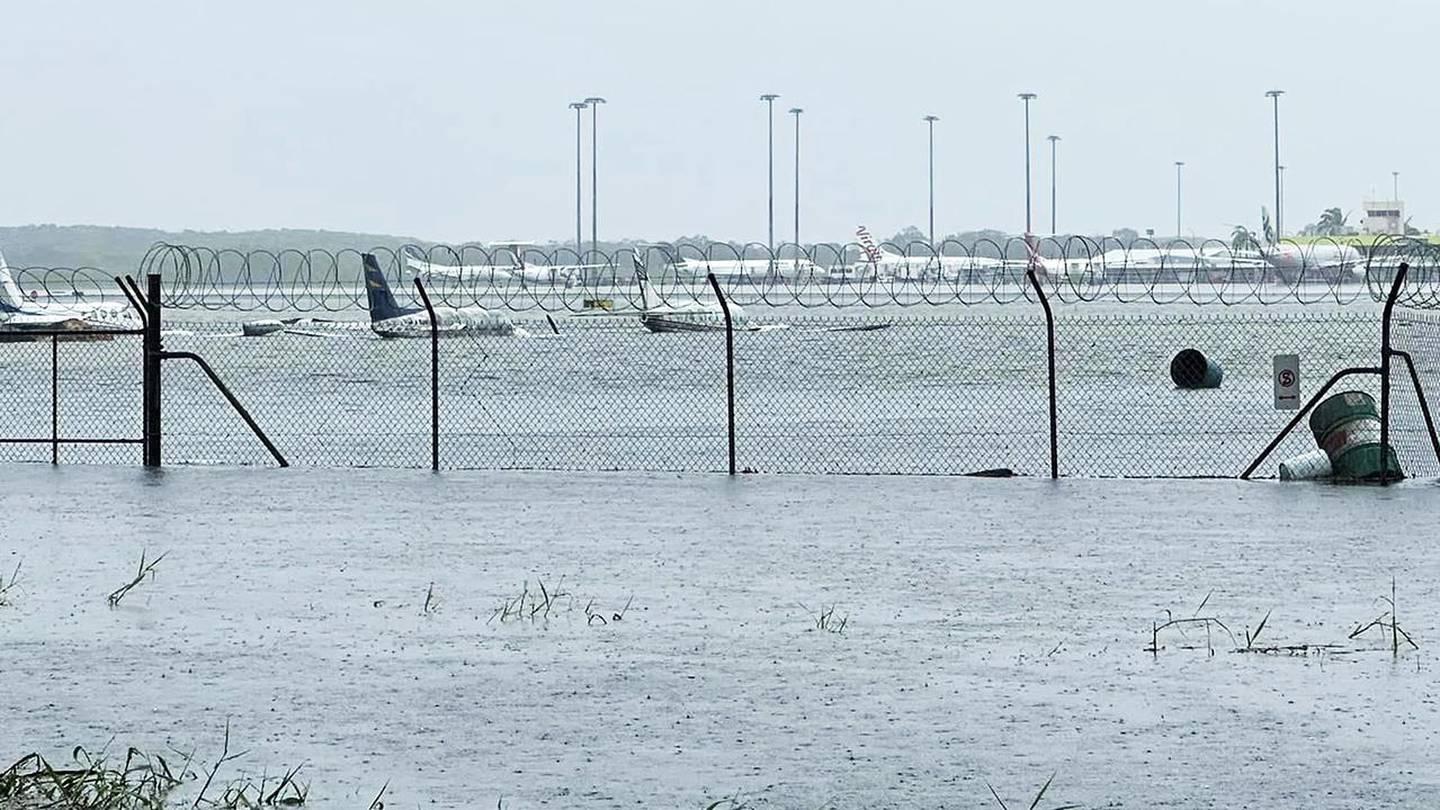
Cairns in Australia is experiencing “life-threatening” flash-flooding due to ex-cyclone Jasper, with dramatic images showing Cairns Airport under water.
Wild weather and life-threatening flooding in far north Queensland are not expected to ease for days as a 10-year-old girl fights for life after being struck by lightning in the state’s southeast.
Ex-tropical Cyclone Jasper is lashing the north of the state, with areas between Daintree and Ingham receiving more than 450mm of rain.
The Bureau of Meteorology said more than 20 rain gauges in the region had recorded more than a metre of rainfall, with water levels expected to break 1977 records.
Premier Steven Miles called the situation very serious, with the potential to get worse.
”There is a serious weather emergency playing out right now,” he said.
”There’s been a very high level of rainfall overnight and during today, and it’s likely to continue.”
Bureau meteorologist Laura Boekel said rivers and creeks were responding rapidly to further rainfall and urged people in the area to stay up to date with evolving warnings.
”These are really high amounts of rainfall and they’re falling into catchments that are already saturated,” she said.
There was a “very high likelihood” conditions would not ease until Tuesday afternoon.
More than 10,500 people were without power on Sunday evening with parts of the state also experiencing a heatwave.
There have been multiple evacuations and rescues, mostly at Mossman, Douglas, Gordonvale and Innisfail.
No people have been reported missing in floodwaters.
Several low-lying homes have been impacted by floodwater, Deputy Police Commissioner and State Disaster Co-ordinator Shane Chelepy said.
Cairns airport shut down on Sunday afternoon, with floodwaters predicted to exceed 3.8m.
Severe thunderstorms have also lashed the state’s southeast across the weekend.A 10-year-old girl was struck by lightning at a private property in Beerwah on the Sunshine Coast at 2.30pm on Saturday during a storm and was in a critical condition in hospital as of Sunday evening.
Storms with potentially damaging winds, large hailstones and heavy rainfall that could lead to flash flooding were forecast for parts of the southeast on Sunday evening.
Additional government and non-government personnel were called to the far north on Sunday to assist with the evolving situation.
People at the Blue Water Estate in Trinity Park were urged to leave the area immediately on Sunday afternoon due to dangerous flooding and to seek shelter in a high place.
Roads were closed throughout the Cairns area due to life-threatening flash-flooding with major arterial the Bruce Highway closed at 13 places between Cairns and Ingham on Sunday afternoon.
Homes, buildings, roads and bridges have been inundated while authorities also warned of landslides and the risk that vital services such as power, water, sewerage and telephone services could be cut.
Residents have been urged not to drive, to take shelter inside, and to stay up high, with people in the Barron catchment and Machans Beach particularly at risk.
Black Mountain in the Barron catchment received the highest total amount of rainfall in the period from 9am on Sunday with 652mm.
Major flood warnings have been issued for the Daintree, Mossman and Herbert rivers, Johnstone River Catchment and the Mulgrave, Russel and Tully rivers.
Jasper has reached the waters of the Gulf of Carpentaria as a low after dumping heavy rain on parts of the state for four days.
The system is slowly moving west and could redevelop into a cyclone from Wednesday as it moves north, Angus Hines from the Bureau of Meteorology said. (AAP)
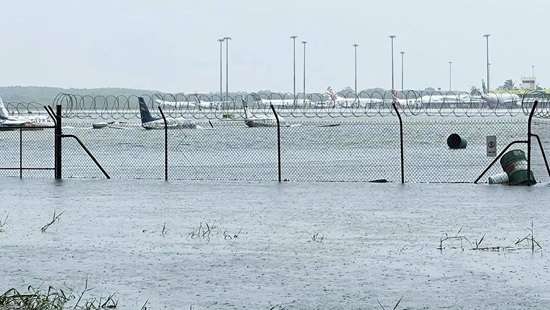 ]]>
]]>
Cairns in Australia is experiencing “life-threatening” flash-flooding due to ex-cyclone Jasper, with dramatic images showing Cairns Airport under water.
Wild weather and life-threatening flooding in far north Queensland are not expected to ease for days as a 10-year-old girl fights for life after being struck by lightning in the state’s southeast.
Ex-tropical Cyclone Jasper is lashing the north of the state, with areas between Daintree and Ingham receiving more than 450mm of rain.
The Bureau of Meteorology said more than 20 rain gauges in the region had recorded more than a metre of rainfall, with water levels expected to break 1977 records.
Premier Steven Miles called the situation very serious, with the potential to get worse.
”There is a serious weather emergency playing out right now,” he said.
”There’s been a very high level of rainfall overnight and during today, and it’s likely to continue.”
Bureau meteorologist Laura Boekel said rivers and creeks were responding rapidly to further rainfall and urged people in the area to stay up to date with evolving warnings.
”These are really high amounts of rainfall and they’re falling into catchments that are already saturated,” she said.
There was a “very high likelihood” conditions would not ease until Tuesday afternoon.
More than 10,500 people were without power on Sunday evening with parts of the state also experiencing a heatwave.
There have been multiple evacuations and rescues, mostly at Mossman, Douglas, Gordonvale and Innisfail.
No people have been reported missing in floodwaters.
Several low-lying homes have been impacted by floodwater, Deputy Police Commissioner and State Disaster Co-ordinator Shane Chelepy said.
Cairns airport shut down on Sunday afternoon, with floodwaters predicted to exceed 3.8m.
Severe thunderstorms have also lashed the state’s southeast across the weekend.A 10-year-old girl was struck by lightning at a private property in Beerwah on the Sunshine Coast at 2.30pm on Saturday during a storm and was in a critical condition in hospital as of Sunday evening.
Storms with potentially damaging winds, large hailstones and heavy rainfall that could lead to flash flooding were forecast for parts of the southeast on Sunday evening.
Additional government and non-government personnel were called to the far north on Sunday to assist with the evolving situation.
People at the Blue Water Estate in Trinity Park were urged to leave the area immediately on Sunday afternoon due to dangerous flooding and to seek shelter in a high place.
Roads were closed throughout the Cairns area due to life-threatening flash-flooding with major arterial the Bruce Highway closed at 13 places between Cairns and Ingham on Sunday afternoon.
Homes, buildings, roads and bridges have been inundated while authorities also warned of landslides and the risk that vital services such as power, water, sewerage and telephone services could be cut.
Residents have been urged not to drive, to take shelter inside, and to stay up high, with people in the Barron catchment and Machans Beach particularly at risk.
Black Mountain in the Barron catchment received the highest total amount of rainfall in the period from 9am on Sunday with 652mm.
Major flood warnings have been issued for the Daintree, Mossman and Herbert rivers, Johnstone River Catchment and the Mulgrave, Russel and Tully rivers.
Jasper has reached the waters of the Gulf of Carpentaria as a low after dumping heavy rain on parts of the state for four days.
The system is slowly moving west and could redevelop into a cyclone from Wednesday as it moves north, Angus Hines from the Bureau of Meteorology said. (AAP)
 ]]>
]]>
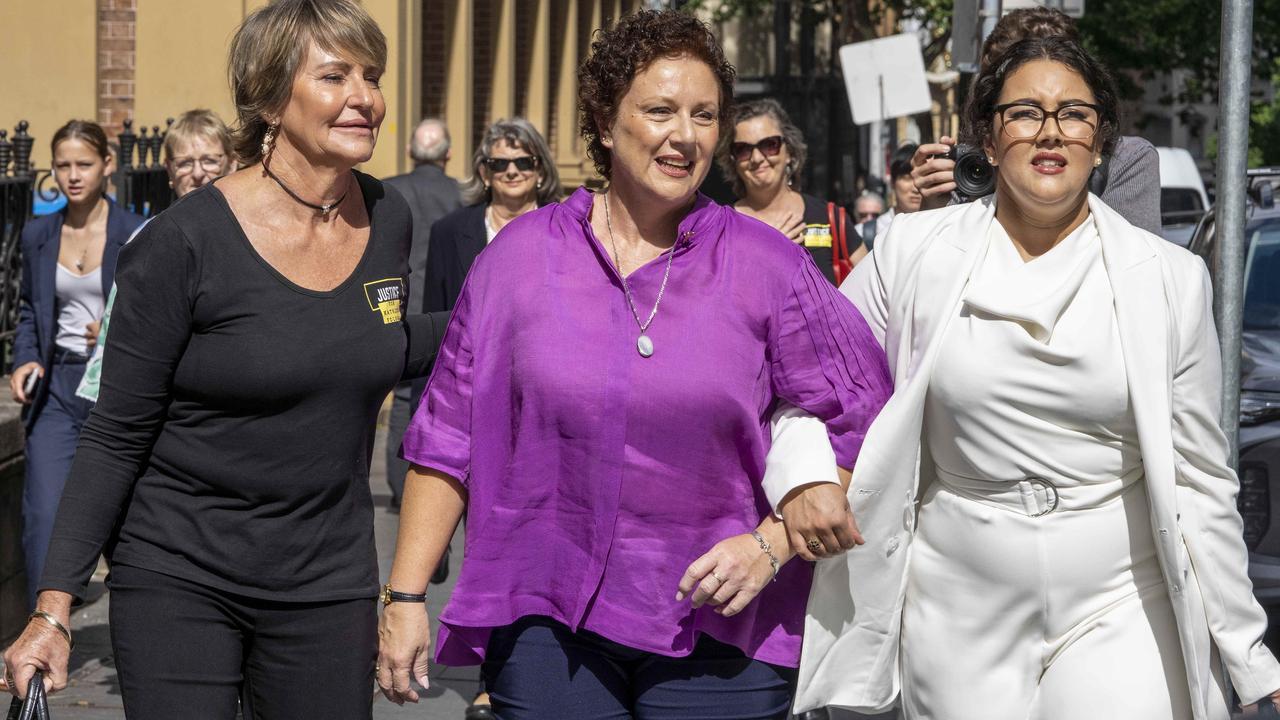
The woman once branded ‘Australia’s worst female serial killer’ will seek a record compensation payout after she was acquitted of killing her four children following a 24-year fight for justice.
Kathleen Folbigg spent two decades in prison after she was found guilty of causing the deaths of her four children. She was released from prison in June after an inquiry found there was “reasonable doubt” about her guilt in respect of all her convictions.
On Thursday, her convictions of three counts of murder, one count of manslaughter, and one count of maliciously inflicting grievous bodily harm, were overturned in the Court of Criminal Appeal.
After a month of deliberation, Chief Justice Andrew Bell, Justice Julie Ward and Chief Justice Ian Harrison found there was “now reasonable doubt as to Ms Folbigg’s guilt”.
They quashed all her convictions in a historic move that her lawyer said could result in a record compensation payout.
A delighted crowd of supporters, many of whom wore ‘Justice for Kathleen Folbigg’ T-shirts, burst into a round of applause in the courtroom as an emotional Ms Folbigg wiped away tears.
She cried as she was embraced by a line of friends while walking out of the courtroom after the life-changing decision.
Outside court, Ms Folbigg said she was grateful for her army of family, friends, and scientific and legal professionals who had sacrificed “a lot” to support her.
“For almost a quarter of a century, I faced disbelief and hostility. I suffered abuse in all its forms,” she said through tears.
“They accused me of something I never wrote about, never did and never could do.”
“I hope that no one else will ever have to suffer what I suffered.”
Ms Folbigg said she was grateful that scientific and genetic discoveries had now provided answers about her children’s deaths, but she never should have been jailed.
“The system preferred to blame me rather than accept that sometimes children can and do die suddenly, unexpectedly, heartbreakingly,” she said.
“I think the system and society need to think before they blame a parent of hurting their children.”
Her lawyer Rhanee Rego confirmed Ms Folbigg would be seeking compensation for wrongful imprisonment.
Ms Rego said she wasn’t prepared to put a figure on the amount sought but it would be “bigger than any substantial payment that has been made before”.
In 1992, Lindy and Michael Chamberlain received $1.3 million after they were pardoned and acquitted in relation to the death of their daughter Azaria.
A spokesman for NSW Attorney-General Michael Daley said the government would “carefully consider any submission that Ms Folbigg or her representatives put forward.”
Thursday’s decision marks the end of a long road to exoneration for the woman previously demonised over the deaths of her four children.
“After 24 years, the legal system has finally listened to Kathleen Folbigg,” Ms Rego announced.
“Today, she is a free woman. A woman who demonstrated courage and resilience to reject the claims made against her.”
The mother was in 2003 jailed for 40 years for the murder of Patrick (eight months), Laura (10 months) and Sarah (19 months) as well as the manslaughter of her son Caleb (19 days).
All of her children died suddenly and none reached their second birthday.
Speaking outside court, Ms Folbigg tearfully declared: “I love my children and I always will.”
Ms Rego told journalists Ms Folbigg’s case exemplified “broader problem” with Australia’s legal system and called for the establishment of an independent body for post-conviction reviews.
“An innocent woman’s suffering should be recognised and become a major impetus to improve our legal system,” Ms Rego said.
“We must all call for reforms that will rectify miscarriages of justice and ensure that every person is treated fairly and humanely.”
Friend and longtime supporter Tracy Chapman said the “epic journey” to Ms Folbigg’s acquittal was a “herculean effort” which “shattered lives and relationships”.
“I’ve witnessed first-hand the extreme and lasting toll a wrongful conviction can have on someone,” she said outside court.
“Kath, I never doubted your innocence, not for one moment.”
Ms Folbigg steadfastly maintained her innocence throughout her two decades behind bars, and she was vindicated by an inquiry into the children’s sudden deaths earlier this year.
The inquiry raised reasonable doubt that the Folbigg children could have died due to natural causes or a rare genetic mutation.
New expert medical evidence published in March 2021 revealed that Sarah and Laura carried the CALM2 genetic mutation, which can cause cardiac problems, irregular heartbeats and lead to sudden death.
This fatal genetic variant would not have been investigated at the time of the children’s deaths because it was not discovered by medical scientists until years later, the inquiry was told.
Former NSW Chief Justice Tom Bathurst KC, who led the inquiry, found Ms Folbigg shared the same genetic mutation as her daughters.
Experts concluded Patrick had likely died due to a brain injury suffered during an epileptic seizure, but they were unable to determine the cause of death for Caleb.
In his report, Mr Bathurst determined there was an “identifiable cause” of three of the children’s deaths and no direct evidence that Ms Folbigg killed her children. (NCA NewsWire)
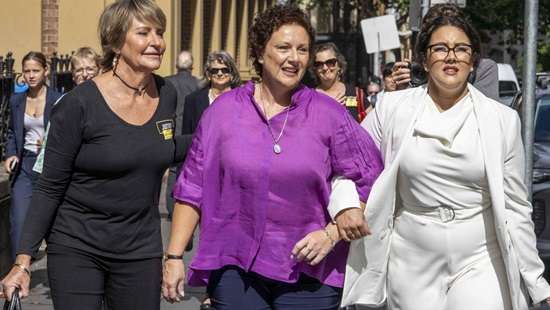 ]]>
]]>
The woman once branded ‘Australia’s worst female serial killer’ will seek a record compensation payout after she was acquitted of killing her four children following a 24-year fight for justice.
Kathleen Folbigg spent two decades in prison after she was found guilty of causing the deaths of her four children. She was released from prison in June after an inquiry found there was “reasonable doubt” about her guilt in respect of all her convictions.
On Thursday, her convictions of three counts of murder, one count of manslaughter, and one count of maliciously inflicting grievous bodily harm, were overturned in the Court of Criminal Appeal.
After a month of deliberation, Chief Justice Andrew Bell, Justice Julie Ward and Chief Justice Ian Harrison found there was “now reasonable doubt as to Ms Folbigg’s guilt”.
They quashed all her convictions in a historic move that her lawyer said could result in a record compensation payout.
A delighted crowd of supporters, many of whom wore ‘Justice for Kathleen Folbigg’ T-shirts, burst into a round of applause in the courtroom as an emotional Ms Folbigg wiped away tears.
She cried as she was embraced by a line of friends while walking out of the courtroom after the life-changing decision.
Outside court, Ms Folbigg said she was grateful for her army of family, friends, and scientific and legal professionals who had sacrificed “a lot” to support her.
“For almost a quarter of a century, I faced disbelief and hostility. I suffered abuse in all its forms,” she said through tears.
“They accused me of something I never wrote about, never did and never could do.”
“I hope that no one else will ever have to suffer what I suffered.”
Ms Folbigg said she was grateful that scientific and genetic discoveries had now provided answers about her children’s deaths, but she never should have been jailed.
“The system preferred to blame me rather than accept that sometimes children can and do die suddenly, unexpectedly, heartbreakingly,” she said.
“I think the system and society need to think before they blame a parent of hurting their children.”
Her lawyer Rhanee Rego confirmed Ms Folbigg would be seeking compensation for wrongful imprisonment.
Ms Rego said she wasn’t prepared to put a figure on the amount sought but it would be “bigger than any substantial payment that has been made before”.
In 1992, Lindy and Michael Chamberlain received $1.3 million after they were pardoned and acquitted in relation to the death of their daughter Azaria.
A spokesman for NSW Attorney-General Michael Daley said the government would “carefully consider any submission that Ms Folbigg or her representatives put forward.”
Thursday’s decision marks the end of a long road to exoneration for the woman previously demonised over the deaths of her four children.
“After 24 years, the legal system has finally listened to Kathleen Folbigg,” Ms Rego announced.
“Today, she is a free woman. A woman who demonstrated courage and resilience to reject the claims made against her.”
The mother was in 2003 jailed for 40 years for the murder of Patrick (eight months), Laura (10 months) and Sarah (19 months) as well as the manslaughter of her son Caleb (19 days).
All of her children died suddenly and none reached their second birthday.
Speaking outside court, Ms Folbigg tearfully declared: “I love my children and I always will.”
Ms Rego told journalists Ms Folbigg’s case exemplified “broader problem” with Australia’s legal system and called for the establishment of an independent body for post-conviction reviews.
“An innocent woman’s suffering should be recognised and become a major impetus to improve our legal system,” Ms Rego said.
“We must all call for reforms that will rectify miscarriages of justice and ensure that every person is treated fairly and humanely.”
Friend and longtime supporter Tracy Chapman said the “epic journey” to Ms Folbigg’s acquittal was a “herculean effort” which “shattered lives and relationships”.
“I’ve witnessed first-hand the extreme and lasting toll a wrongful conviction can have on someone,” she said outside court.
“Kath, I never doubted your innocence, not for one moment.”
Ms Folbigg steadfastly maintained her innocence throughout her two decades behind bars, and she was vindicated by an inquiry into the children’s sudden deaths earlier this year.
The inquiry raised reasonable doubt that the Folbigg children could have died due to natural causes or a rare genetic mutation.
New expert medical evidence published in March 2021 revealed that Sarah and Laura carried the CALM2 genetic mutation, which can cause cardiac problems, irregular heartbeats and lead to sudden death.
This fatal genetic variant would not have been investigated at the time of the children’s deaths because it was not discovered by medical scientists until years later, the inquiry was told.
Former NSW Chief Justice Tom Bathurst KC, who led the inquiry, found Ms Folbigg shared the same genetic mutation as her daughters.
Experts concluded Patrick had likely died due to a brain injury suffered during an epileptic seizure, but they were unable to determine the cause of death for Caleb.
In his report, Mr Bathurst determined there was an “identifiable cause” of three of the children’s deaths and no direct evidence that Ms Folbigg killed her children. (NCA NewsWire)
 ]]>
]]>
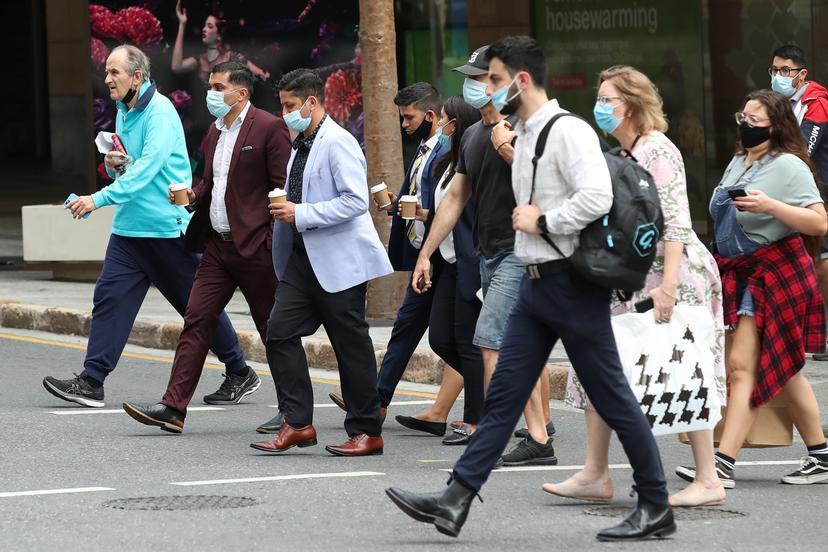
Health authorities in several Australian states have recommended the return of masks amid a spike in COVID-19 cases leading up to Christmas.
Virus cases recently spiked 23.6 per cent across the country and experts say we are entering an eighth wave of infections.
In NSW, more than 11 per cent of PCR tests came back positive in the two weeks to November 4 and the state’s health department warned “COVID-19 cases are increasing”.
“Emergency department presentations for COVID-19 increased across most age groups, particularly young children and those aged 65 years and older,” the department’s latest respiratory surveillance report said.
On X (formerly Twitter) people have been asked to consider wearing a mask in crowded indoor areas and to ensure they stay on top of other “everyday habits” followed strictly at the height of the pandemic — including staying home if you have cold or flu symptoms.
Being up to date with vaccinations, washing your hands thoroughly and regularly and socialising outside in fresh air is also among the advice to follow.
Masks can stop COVID droplets from spreading when people talk, cough and sneeze.
The NSW mask recommendation follows similar recent advice from Victorian officials, where community transmission of the virus is surging.
“This is an expected part of the ongoing evolution of the coronavirus in the community, as our immunity from both infection and vaccination wanes with time and COVID-19 continues to circulate,” an alert from the acting chief health officer said.
On Friday Victorian officials revealed the number of people in hospital with COVID-19 was at its highest daily average — 321 — since June and up from 270 just last week.
Sadly, 122 people with the virus have died in the last 28 days.
COVID case numbers in South Australia are now the highest they have been since June, and authorities want all festive gatherings held outside.
Close to 2500 new cases have been recorded in the last week and infection numbers are expected to climb until Christmas.
Authorities in both South Australia and Queensland urged caution last month following a surge in COVID-related hospitalisations.
Health officials in both jurisdictions have also raised concerns about coronavirus subvariant BA.2.86, nicknamed Pirola.
7NEWS reports vulnerable groups in South Australia were told the current vaccines may not work for all, with a more effective jab on its way.
“For those who are at risk ... it is important they protect themselves. The new vaccine is the best way to do that,” epidemiologist Adrian Esterman said.
Until then, he said face masks should be a consideration when in public. (7NEWS)
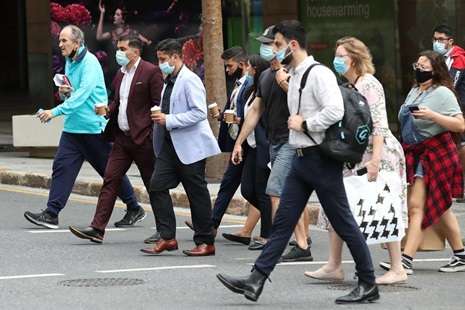 ]]>
]]>
Health authorities in several Australian states have recommended the return of masks amid a spike in COVID-19 cases leading up to Christmas.
Virus cases recently spiked 23.6 per cent across the country and experts say we are entering an eighth wave of infections.
In NSW, more than 11 per cent of PCR tests came back positive in the two weeks to November 4 and the state’s health department warned “COVID-19 cases are increasing”.
“Emergency department presentations for COVID-19 increased across most age groups, particularly young children and those aged 65 years and older,” the department’s latest respiratory surveillance report said.
On X (formerly Twitter) people have been asked to consider wearing a mask in crowded indoor areas and to ensure they stay on top of other “everyday habits” followed strictly at the height of the pandemic — including staying home if you have cold or flu symptoms.
Being up to date with vaccinations, washing your hands thoroughly and regularly and socialising outside in fresh air is also among the advice to follow.
Masks can stop COVID droplets from spreading when people talk, cough and sneeze.
The NSW mask recommendation follows similar recent advice from Victorian officials, where community transmission of the virus is surging.
“This is an expected part of the ongoing evolution of the coronavirus in the community, as our immunity from both infection and vaccination wanes with time and COVID-19 continues to circulate,” an alert from the acting chief health officer said.
On Friday Victorian officials revealed the number of people in hospital with COVID-19 was at its highest daily average — 321 — since June and up from 270 just last week.
Sadly, 122 people with the virus have died in the last 28 days.
COVID case numbers in South Australia are now the highest they have been since June, and authorities want all festive gatherings held outside.
Close to 2500 new cases have been recorded in the last week and infection numbers are expected to climb until Christmas.
Authorities in both South Australia and Queensland urged caution last month following a surge in COVID-related hospitalisations.
Health officials in both jurisdictions have also raised concerns about coronavirus subvariant BA.2.86, nicknamed Pirola.
7NEWS reports vulnerable groups in South Australia were told the current vaccines may not work for all, with a more effective jab on its way.
“For those who are at risk ... it is important they protect themselves. The new vaccine is the best way to do that,” epidemiologist Adrian Esterman said.
Until then, he said face masks should be a consideration when in public. (7NEWS)
 ]]>
]]>
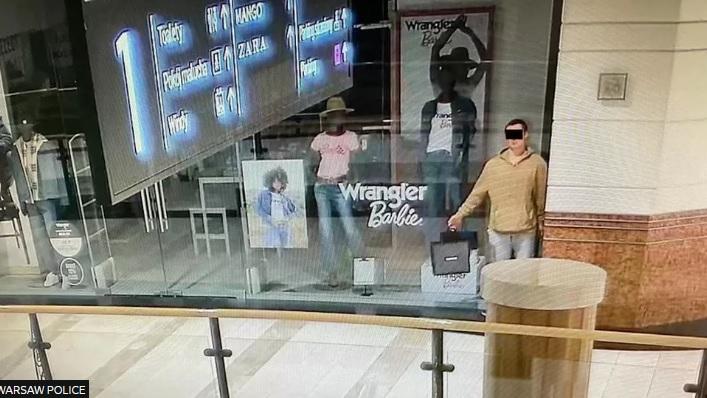
A man has been accused of posing as a mannequin in a Warsaw shop window to steal jewellery after closing time.
The 22-year-old was pictured standing still and holding a bag in a window of the store, which police have not named.
Police said the accused went "hunting" in various departments after closing, before settling on a jewellery stand.
The man is also accused of stealing items from a second mall. He has been charged with burglary and theft and faces up to 10 years in prison.
Warsaw Police said that staff and shoppers failed to notice anything unusual as the man stood in the window, and blended in with several mannequins.
Police said that he stood still until "he felt it was safe", then walked through various departments after closing time before taking jewellery.
He was eventually spotted by security staff.
The man is accused in two other incidents. In the first, police say he dined late at a restaurant in a second shopping centre and waited for it to close.
Police said he then entered a clothing store and "exchanged his clothes for new ones", before returning to the restaurant for another meal.
He was caught on CCTV slipping under the clothing store's partially open shutters.
Robert Szumiata, a police spokesman, said that in the third incident at another location, the man waited until after closing time and then "took money from several cash registers and tried to steal other items".
Police have released pictures of the suspect's eventual arrest.
The man has been remanded in custody for three months, prosecutors in Warsaw said. (BBC)
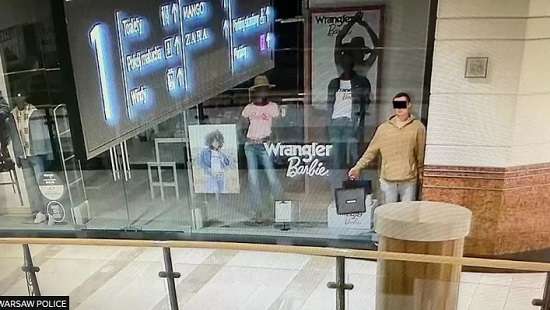 ]]>
]]>
A man has been accused of posing as a mannequin in a Warsaw shop window to steal jewellery after closing time.
The 22-year-old was pictured standing still and holding a bag in a window of the store, which police have not named.
Police said the accused went "hunting" in various departments after closing, before settling on a jewellery stand.
The man is also accused of stealing items from a second mall. He has been charged with burglary and theft and faces up to 10 years in prison.
Warsaw Police said that staff and shoppers failed to notice anything unusual as the man stood in the window, and blended in with several mannequins.
Police said that he stood still until "he felt it was safe", then walked through various departments after closing time before taking jewellery.
He was eventually spotted by security staff.
The man is accused in two other incidents. In the first, police say he dined late at a restaurant in a second shopping centre and waited for it to close.
Police said he then entered a clothing store and "exchanged his clothes for new ones", before returning to the restaurant for another meal.
He was caught on CCTV slipping under the clothing store's partially open shutters.
Robert Szumiata, a police spokesman, said that in the third incident at another location, the man waited until after closing time and then "took money from several cash registers and tried to steal other items".
Police have released pictures of the suspect's eventual arrest.
The man has been remanded in custody for three months, prosecutors in Warsaw said. (BBC)
 ]]>
]]>
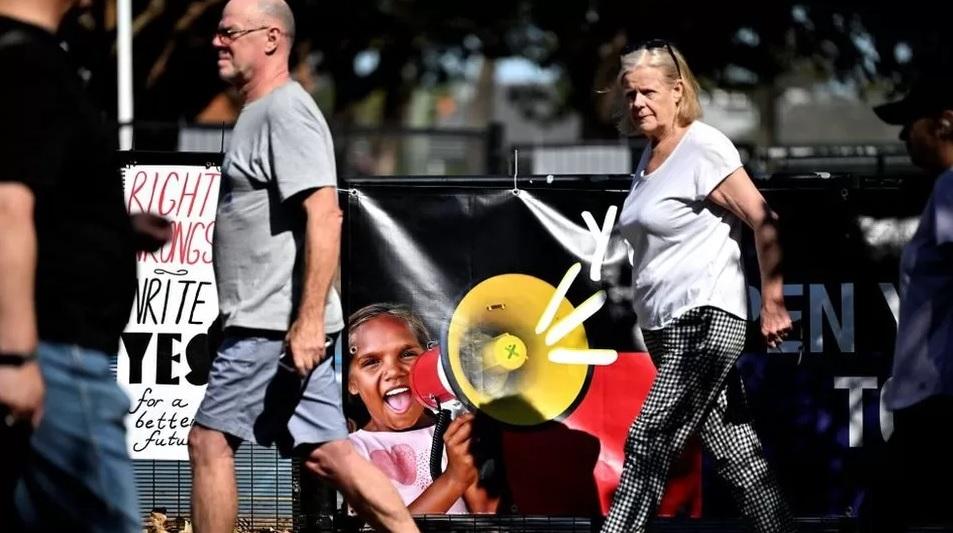
Australia has overwhelmingly rejected a plan to give greater rights to Indigenous people in a referendum.
All six states voted no to a proposal to change the constitution to recognise Indigenous citizens and create an advisory body to the government.
Prime Minister Anthony Albanese said defeat was hard: "When you aim high, sometimes you fall short. We understand and respect that we have."
Opposition leader Peter Dutton said the result was "good for our country".
The referendum, dubbed "The Voice", was Australia's first in more than a quarter of a century. With almost 70% of the vote counted, the "No" vote led "Yes" 60% to 40%.
Its rejection followed a fraught and often ill-tempered campaign.
Supporters said that entrenching the Indigenous peoples into the constitution would unite Australia and usher in a new era.
No leaders said that the idea was divisive, would create special "classes" of citizens where some were more equal than others, and the new advisory body would slow government decision-making.
They were criticised over their appeal to undecided voters with a "Don't know? Vote no" message, and accused of running a campaign based on misinformation about the effects of the plan.
The result leaves Mr Albanese searching for a way forward with his vision for the country, and a resurgent opposition keen to capitalise on its victory.
Addressing the nation, the prime minister said he respected the vote and "the democratic process that has delivered it".
"This moment of disagreement does not define us, and it will not divide us, we are not Yes voters or No voters, we are all Australians. And it is as Australians together, that we must take our country beyond this debate, without forgetting why we had it in the first place.
"Too often in the life of our nation, the disadvantage confronting Aboriginal and Torres Strait Islander people has been relegated to the margins, this referendum and my government has put it right at the centre."
Mr Dutton said after the result that Australia "did not need to have" such a vote. "What we've seen tonight is Australians in their millions reject the prime minister's divisive referendum."
Leading No advocate and Bundjalung man Warren Mundine said: "This is a referendum that we should have never had had because it was built on the lie that Aboriginal people do not have a voice."
For some in the Yes camp, the devastation was visible.
"Our Indigenous leadership put themselves out there for this... we have seen a disgusting No campaign that has been dishonest, that has lied to the Australian people," Yes advocate Thomas Mayo told the ABC.
"I'm not blaming the Australian people at all, but who I do blame are those who lied to them," the Kaurareg Aboriginal and Kalkalgal, Erubamle Torres Strait Islander man added.
The Voice to Parliament was proposed in the Uluru Statement from the Heart, a 2017 document crafted by Indigenous leaders that set out a roadmap for reconciliation with wider Australia.
Australia's Indigenous citizens - who make up 3.8% of the country's 26 million population - have inhabited the land for about 60,000 years but are not mentioned in the constitution. They are, by most socio-economic measures, the most disadvantaged people in the country.
The referendum marked the 45th time Australia has attempted to change its founding document - but only eight proposals have cleared. It was also the second time the issue of Indigenous recognition was put to a national vote - the last attempt was in 1999.
The Yes campaign said that the Voice could tackle "the entrenched inequality" their people still face. The No campaign saw it differently. (Courtesy BBC)
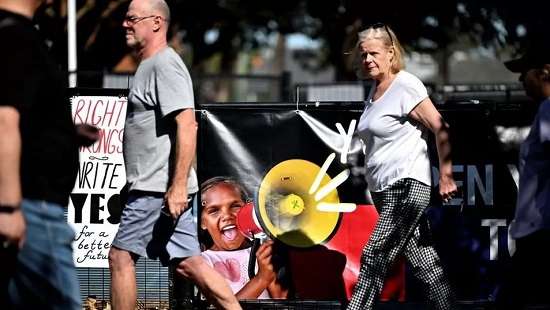 ]]>
]]>
Australia has overwhelmingly rejected a plan to give greater rights to Indigenous people in a referendum.
All six states voted no to a proposal to change the constitution to recognise Indigenous citizens and create an advisory body to the government.
Prime Minister Anthony Albanese said defeat was hard: "When you aim high, sometimes you fall short. We understand and respect that we have."
Opposition leader Peter Dutton said the result was "good for our country".
The referendum, dubbed "The Voice", was Australia's first in more than a quarter of a century. With almost 70% of the vote counted, the "No" vote led "Yes" 60% to 40%.
Its rejection followed a fraught and often ill-tempered campaign.
Supporters said that entrenching the Indigenous peoples into the constitution would unite Australia and usher in a new era.
No leaders said that the idea was divisive, would create special "classes" of citizens where some were more equal than others, and the new advisory body would slow government decision-making.
They were criticised over their appeal to undecided voters with a "Don't know? Vote no" message, and accused of running a campaign based on misinformation about the effects of the plan.
The result leaves Mr Albanese searching for a way forward with his vision for the country, and a resurgent opposition keen to capitalise on its victory.
Addressing the nation, the prime minister said he respected the vote and "the democratic process that has delivered it".
"This moment of disagreement does not define us, and it will not divide us, we are not Yes voters or No voters, we are all Australians. And it is as Australians together, that we must take our country beyond this debate, without forgetting why we had it in the first place.
"Too often in the life of our nation, the disadvantage confronting Aboriginal and Torres Strait Islander people has been relegated to the margins, this referendum and my government has put it right at the centre."
Mr Dutton said after the result that Australia "did not need to have" such a vote. "What we've seen tonight is Australians in their millions reject the prime minister's divisive referendum."
Leading No advocate and Bundjalung man Warren Mundine said: "This is a referendum that we should have never had had because it was built on the lie that Aboriginal people do not have a voice."
For some in the Yes camp, the devastation was visible.
"Our Indigenous leadership put themselves out there for this... we have seen a disgusting No campaign that has been dishonest, that has lied to the Australian people," Yes advocate Thomas Mayo told the ABC.
"I'm not blaming the Australian people at all, but who I do blame are those who lied to them," the Kaurareg Aboriginal and Kalkalgal, Erubamle Torres Strait Islander man added.
The Voice to Parliament was proposed in the Uluru Statement from the Heart, a 2017 document crafted by Indigenous leaders that set out a roadmap for reconciliation with wider Australia.
Australia's Indigenous citizens - who make up 3.8% of the country's 26 million population - have inhabited the land for about 60,000 years but are not mentioned in the constitution. They are, by most socio-economic measures, the most disadvantaged people in the country.
The referendum marked the 45th time Australia has attempted to change its founding document - but only eight proposals have cleared. It was also the second time the issue of Indigenous recognition was put to a national vote - the last attempt was in 1999.
The Yes campaign said that the Voice could tackle "the entrenched inequality" their people still face. The No campaign saw it differently. (Courtesy BBC)
 ]]>
]]>
Carboni said that the human misery caused by the escalation is abhorrent, and he implored the sides to reduce the suffering of civilians.
"As Gaza loses power, hospitals lose power, putting newborns in incubators and elderly patients on oxygen at risk. Kidney dialysis stops, and X-rays can’t be taken. Without electricity, hospitals risk turning into morgues," Carboni said in a statement.
Carboni said that families in Gaza are already having trouble accessing clean water and no parent wants to be forced to give a thirsty child dirty water.
"At the same time Israeli families are worried sick about loved ones taken hostage. The taking of hostages is prohibited under international humanitarian law, and anyone being held should be immediately released," he added.
"We are now in contact with Hamas and Israeli officials as part of efforts on this issue. As a neutral intermediary we stand ready to conduct humanitarian visits; facilitate communication between hostages and family members; and to facilitate any eventual release," Carboni said.
The International Committee of the Red Cross is a neutral, impartial and independent organization with an exclusively humanitarian mandate that stems from the Geneva Conventions of 1949.
It helps people around the world affected by armed conflict and other violence, doing everything it can to protect their lives and dignity and to relieve their suffering, often alongside its Red Cross and Red Crescent partners.
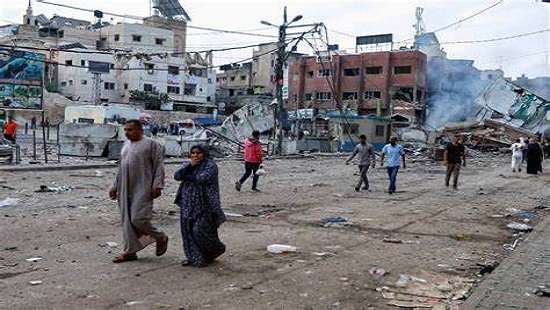 ]]>
]]>Carboni said that the human misery caused by the escalation is abhorrent, and he implored the sides to reduce the suffering of civilians.
"As Gaza loses power, hospitals lose power, putting newborns in incubators and elderly patients on oxygen at risk. Kidney dialysis stops, and X-rays can’t be taken. Without electricity, hospitals risk turning into morgues," Carboni said in a statement.
Carboni said that families in Gaza are already having trouble accessing clean water and no parent wants to be forced to give a thirsty child dirty water.
"At the same time Israeli families are worried sick about loved ones taken hostage. The taking of hostages is prohibited under international humanitarian law, and anyone being held should be immediately released," he added.
"We are now in contact with Hamas and Israeli officials as part of efforts on this issue. As a neutral intermediary we stand ready to conduct humanitarian visits; facilitate communication between hostages and family members; and to facilitate any eventual release," Carboni said.
The International Committee of the Red Cross is a neutral, impartial and independent organization with an exclusively humanitarian mandate that stems from the Geneva Conventions of 1949.
It helps people around the world affected by armed conflict and other violence, doing everything it can to protect their lives and dignity and to relieve their suffering, often alongside its Red Cross and Red Crescent partners.
 ]]>
]]>
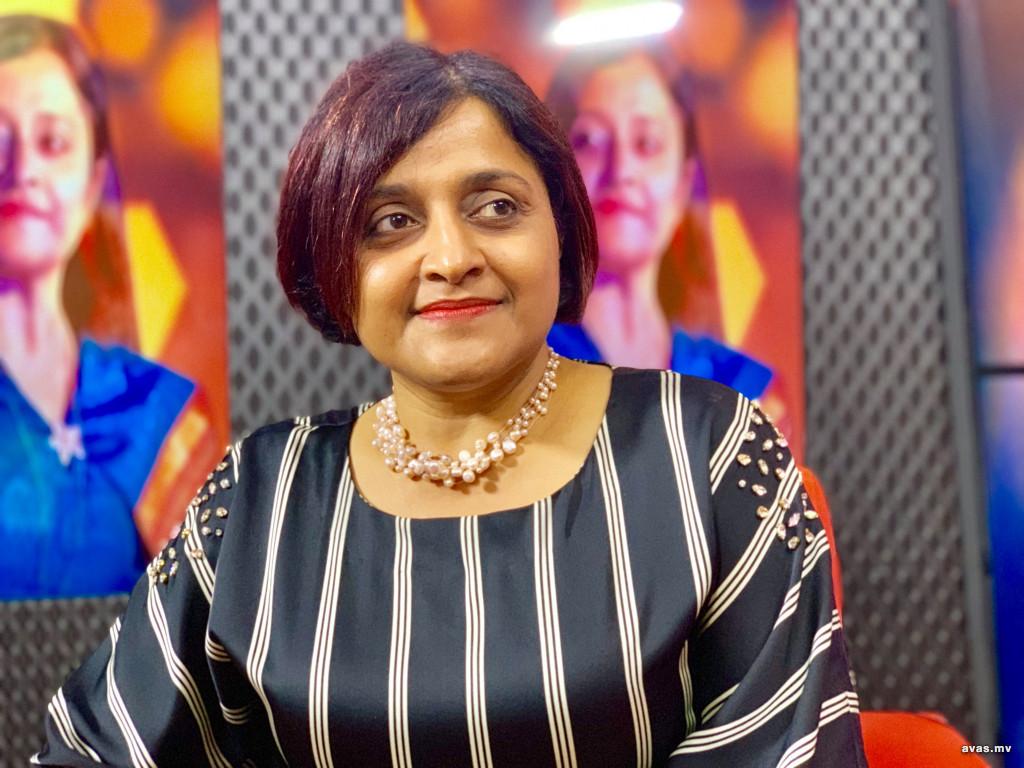 By Easwaran Rutnam
By Easwaran Rutnam
While Maldives President-Elect Dr. Mohamed Muizzu has been branded as being pro-China, former Foreign Minister Dunya Maumoon said that the new President is expected to be "pro-many countries".
Responding to an X post (formerly known as Twitter) by former Maldives Defence Minister Mariya Didi where she had reposted a news with the headline "Pro-China candidate Muizzu wins presidency", Maumoon questioned if there was an issue being pro-China.
"Is there a problem of being Pro-China? Maldives has completed many major infrastructure projects with Chinese support," Maumoon said on X.
Mohamed Muiz's win at the polls has been seen as opening the doors for China to get more involved with the Maldives as opposed to India which worked closely with outgoing Maldives President Ibrahim Mohamed Solih.
However, Maumoon asserted she is certain that President-Elect Dr. Mohamed Muiz will be "pro-many countries".
"I am certain that His Excellency @MMuizzu will be pro-many countries to further the development, pride & well-being of all Maldivians," she said on X.
Dunya Maumoon who recently rejoined the PPM after having served as the Vice President of the MNP, had also been critical of the Maldives' current foreign policy, which she had described as too dependent on India alone. She has been vocal about maintaining ties with all countries, instead of focusing on just one.
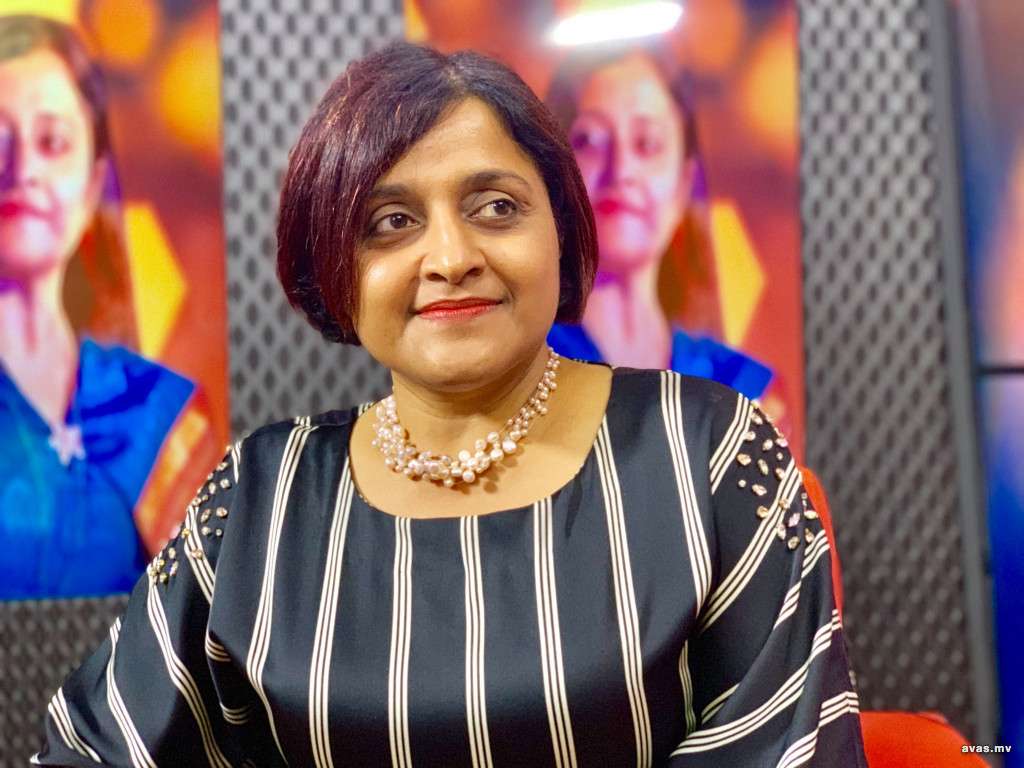 ]]>
]]> By Easwaran Rutnam
By Easwaran Rutnam
While Maldives President-Elect Dr. Mohamed Muizzu has been branded as being pro-China, former Foreign Minister Dunya Maumoon said that the new President is expected to be "pro-many countries".
Responding to an X post (formerly known as Twitter) by former Maldives Defence Minister Mariya Didi where she had reposted a news with the headline "Pro-China candidate Muizzu wins presidency", Maumoon questioned if there was an issue being pro-China.
"Is there a problem of being Pro-China? Maldives has completed many major infrastructure projects with Chinese support," Maumoon said on X.
Mohamed Muiz's win at the polls has been seen as opening the doors for China to get more involved with the Maldives as opposed to India which worked closely with outgoing Maldives President Ibrahim Mohamed Solih.
However, Maumoon asserted she is certain that President-Elect Dr. Mohamed Muiz will be "pro-many countries".
"I am certain that His Excellency @MMuizzu will be pro-many countries to further the development, pride & well-being of all Maldivians," she said on X.
Dunya Maumoon who recently rejoined the PPM after having served as the Vice President of the MNP, had also been critical of the Maldives' current foreign policy, which she had described as too dependent on India alone. She has been vocal about maintaining ties with all countries, instead of focusing on just one.
 ]]>
]]>
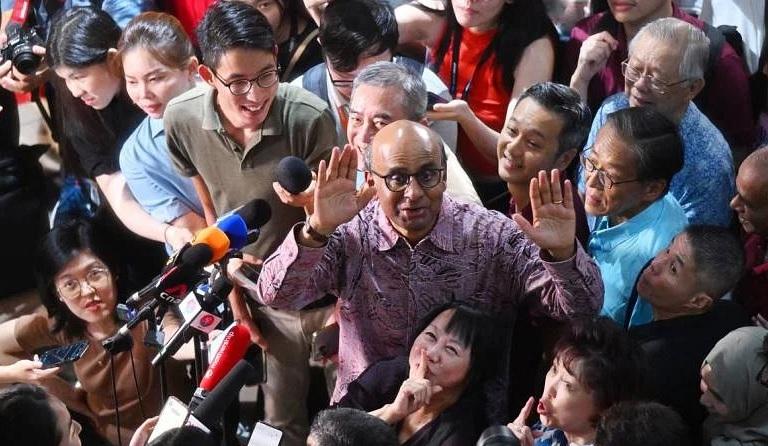
Singapore President-elect Tharman Shanmugaratnam pledged to use his presidency to help build a future of optimism and solidarity among all Singaporeans.
Making his first remarks to the media after early indications that he had won the election by a landslide, Mr Tharman said his win was a vote of confidence in Singapore’s future.
“I pledge and it will be my duty to use the roles and responsibilities of the president to advance this future of optimism and solidarity among Singaporeans. That is my pledge,” Mr Tharman said at the Taman Jurong Market and Food Centre, surrounded by hundreds of jubilant supporters.
“Once again, let me just say that I am truly humbled, and I will honour the trust that Singaporeans have placed in me and respect all Singaporeans for the views they have expressed, including those who did not vote for me.”
Mr Tharman, 66, will be Singapore’s ninth president. He won the election with a vote share of 70.4 per cent.
His rivals, Mr Ng Kok Song and Mr Tan Kin Lian, received 15.72 and 13.88 per cent of the vote, respectively.
Thanking Singaporeans, Mr Tharman said his win was both a vote of confidence in Singapore, and also “a vote of optimism for a future in which we can progress together and support each other as Singaporeans”.
“That has been my platform, and I believe it has received strong endorsement by Singaporeans,” he said.
During his presidential election campaign, the former senior minister had often cited his track record in connecting with people from all backgrounds in Jurong, and said if he was elected, he would support ground-up initiatives to uplift the disadvantaged and work to bridge diverse views in society.
Mr Tharman is the first non-Chinese presidential candidate to win a contested election.
In his remarks to the media, he pointed out that this was a contested election with a multiracial slate.
“I have always said that race is never absent in politics anywhere in the world, or even in an apolitical election like this case. Race is never absent, but it is not the only factor.
“And I think with each half decade, Singapore is changing and evolving, and I hope that my being elected president is seen as another milestone in that process of evolution.”
In his remarks to the media, he pointed out that this was a contested election with a multiracial slate.
“I have always said that race is never absent in politics anywhere in the world, or even in an apolitical election like this case. Race is never absent, but it is not the only factor.
“And I think with each half decade, Singapore is changing and evolving, and I hope that my being elected president is seen as another milestone in that process of evolution.”
Political observers said it was Mr Tharman’s relatability and personality that helped him get such an overwhelming lead.
Dr Mustafa Izzuddin, a senior international affairs analyst at Solaris Strategies Singapore, said Mr Tharman was one of the more respected and popular ministers before he resigned from the Cabinet.
“I think the primary reason people voted for him is because of his honesty, sincerity, his genuineness and his international standing,” said Dr Mustafa.
“Among the three candidates, he was the one who was able to articulate the role of the president the best.”
Some of the key issues during the hustings included the limit of the president’s role, how he would perform his custodial functions, as well as his independence from the establishment.
Mr Ng cited his credentials as former GIC chief investment officer and emphasised that he had the financial nous for the job. He also stressed that he was the only candidate without any prior party affiliations. (The Straits Times)
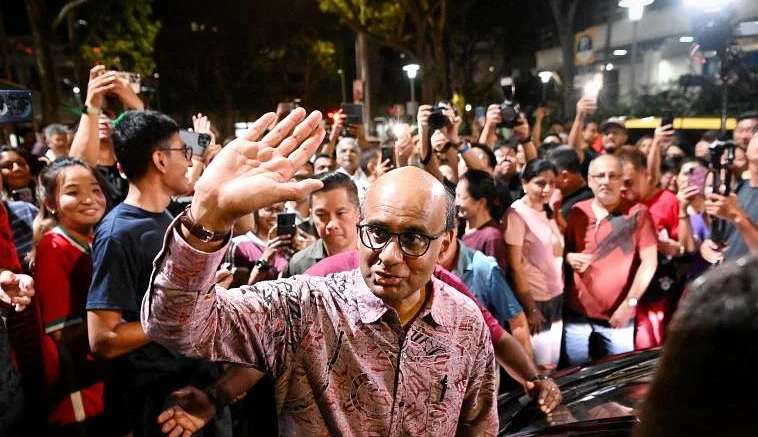 ]]>
]]>
Singapore President-elect Tharman Shanmugaratnam pledged to use his presidency to help build a future of optimism and solidarity among all Singaporeans.
Making his first remarks to the media after early indications that he had won the election by a landslide, Mr Tharman said his win was a vote of confidence in Singapore’s future.
“I pledge and it will be my duty to use the roles and responsibilities of the president to advance this future of optimism and solidarity among Singaporeans. That is my pledge,” Mr Tharman said at the Taman Jurong Market and Food Centre, surrounded by hundreds of jubilant supporters.
“Once again, let me just say that I am truly humbled, and I will honour the trust that Singaporeans have placed in me and respect all Singaporeans for the views they have expressed, including those who did not vote for me.”
Mr Tharman, 66, will be Singapore’s ninth president. He won the election with a vote share of 70.4 per cent.
His rivals, Mr Ng Kok Song and Mr Tan Kin Lian, received 15.72 and 13.88 per cent of the vote, respectively.
Thanking Singaporeans, Mr Tharman said his win was both a vote of confidence in Singapore, and also “a vote of optimism for a future in which we can progress together and support each other as Singaporeans”.
“That has been my platform, and I believe it has received strong endorsement by Singaporeans,” he said.
During his presidential election campaign, the former senior minister had often cited his track record in connecting with people from all backgrounds in Jurong, and said if he was elected, he would support ground-up initiatives to uplift the disadvantaged and work to bridge diverse views in society.
Mr Tharman is the first non-Chinese presidential candidate to win a contested election.
In his remarks to the media, he pointed out that this was a contested election with a multiracial slate.
“I have always said that race is never absent in politics anywhere in the world, or even in an apolitical election like this case. Race is never absent, but it is not the only factor.
“And I think with each half decade, Singapore is changing and evolving, and I hope that my being elected president is seen as another milestone in that process of evolution.”
In his remarks to the media, he pointed out that this was a contested election with a multiracial slate.
“I have always said that race is never absent in politics anywhere in the world, or even in an apolitical election like this case. Race is never absent, but it is not the only factor.
“And I think with each half decade, Singapore is changing and evolving, and I hope that my being elected president is seen as another milestone in that process of evolution.”
Political observers said it was Mr Tharman’s relatability and personality that helped him get such an overwhelming lead.
Dr Mustafa Izzuddin, a senior international affairs analyst at Solaris Strategies Singapore, said Mr Tharman was one of the more respected and popular ministers before he resigned from the Cabinet.
“I think the primary reason people voted for him is because of his honesty, sincerity, his genuineness and his international standing,” said Dr Mustafa.
“Among the three candidates, he was the one who was able to articulate the role of the president the best.”
Some of the key issues during the hustings included the limit of the president’s role, how he would perform his custodial functions, as well as his independence from the establishment.
Mr Ng cited his credentials as former GIC chief investment officer and emphasised that he had the financial nous for the job. He also stressed that he was the only candidate without any prior party affiliations. (The Straits Times)
 ]]>
]]>